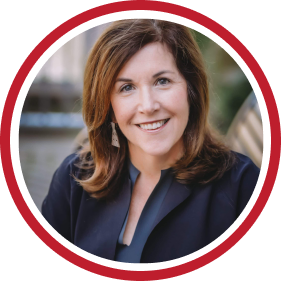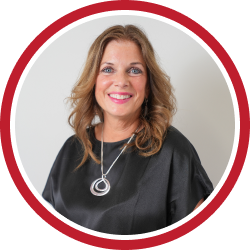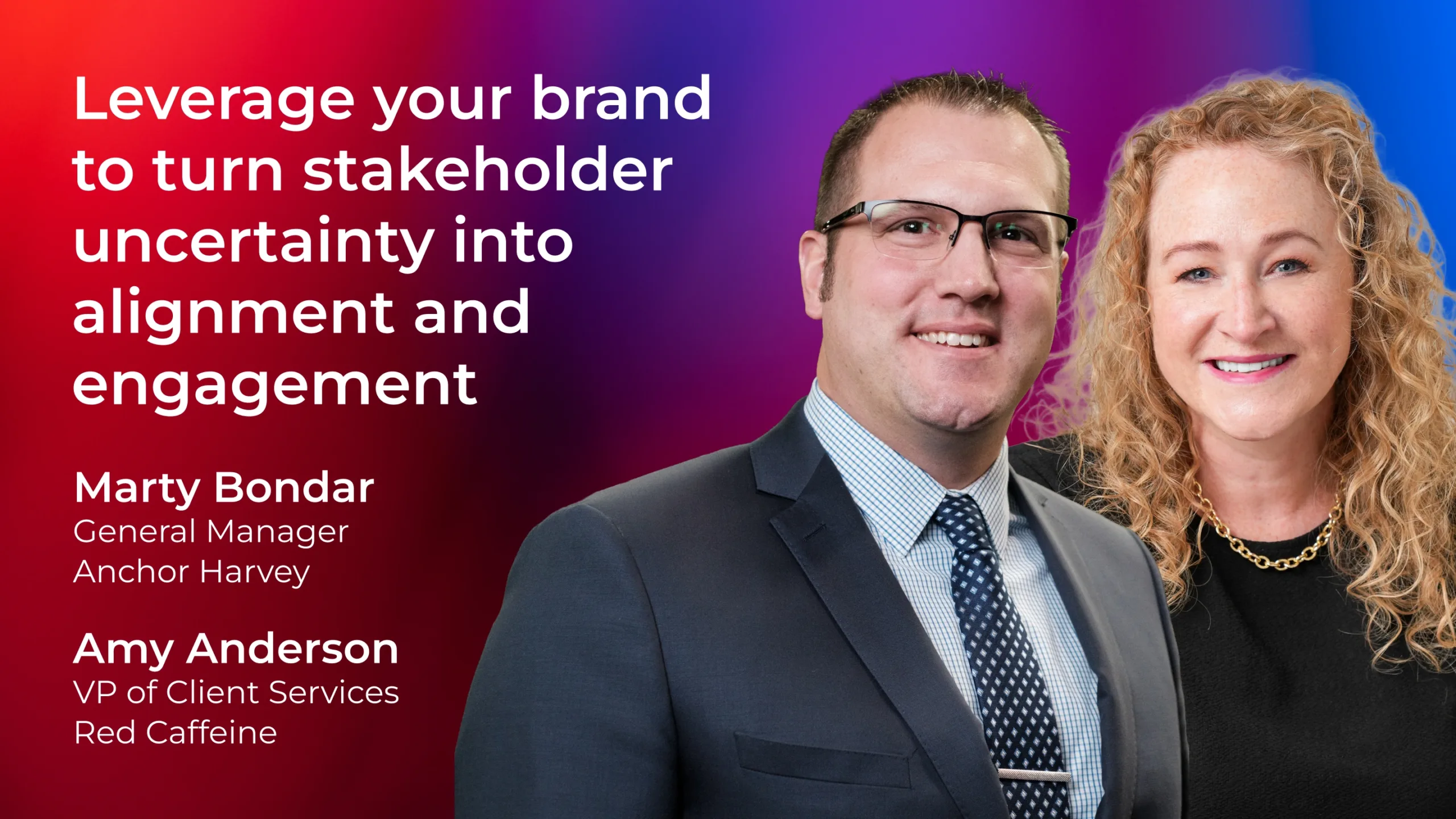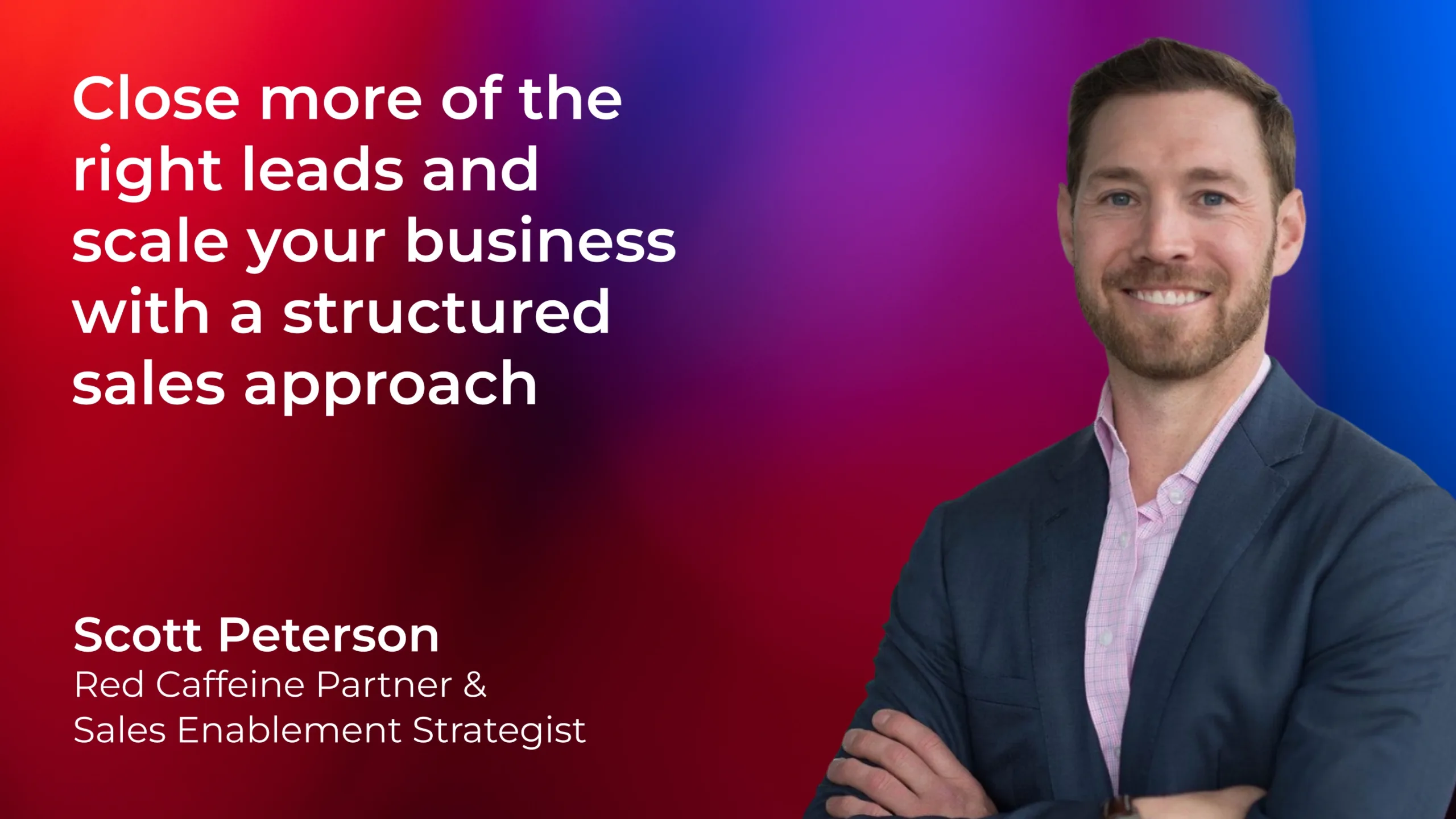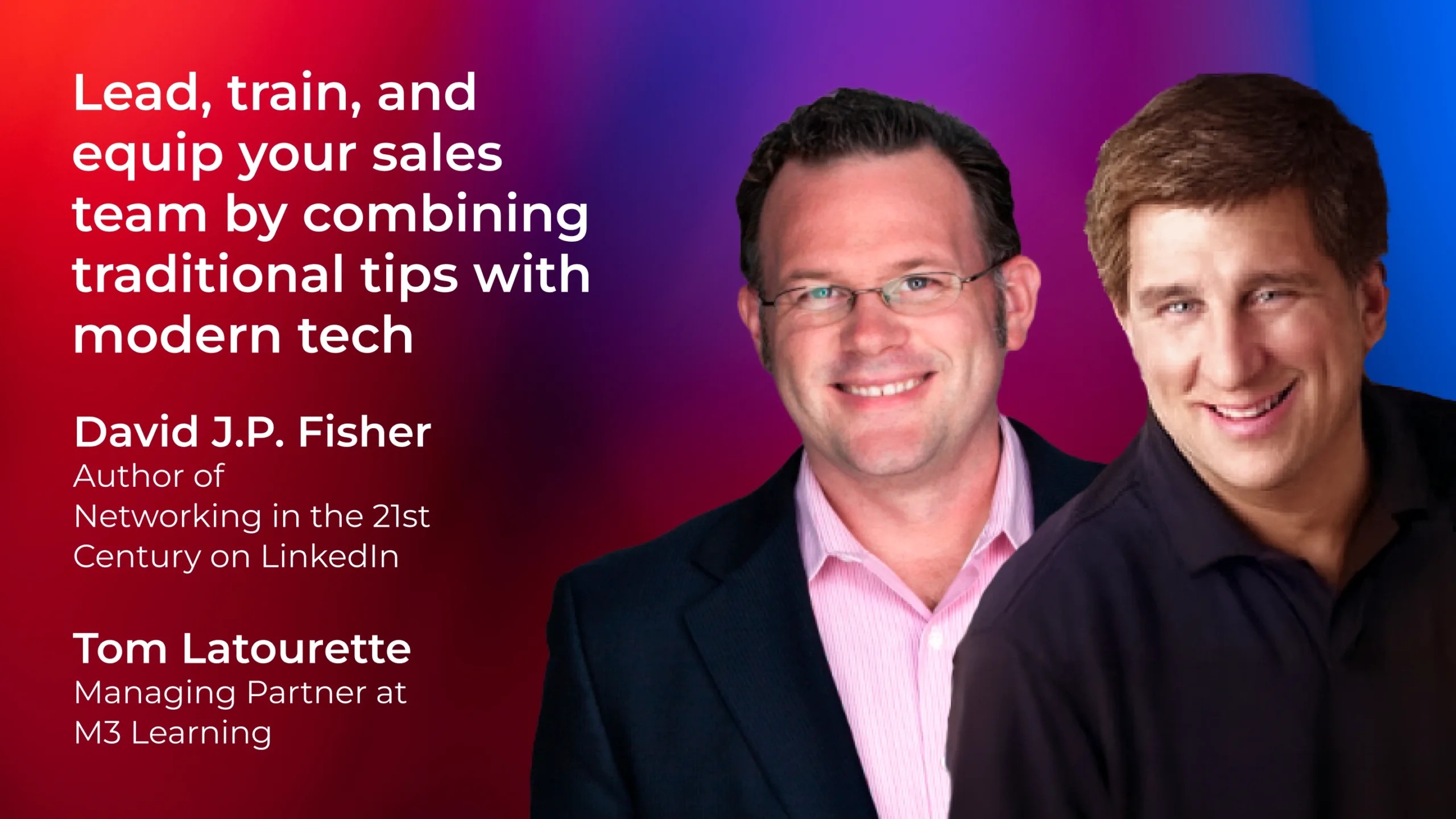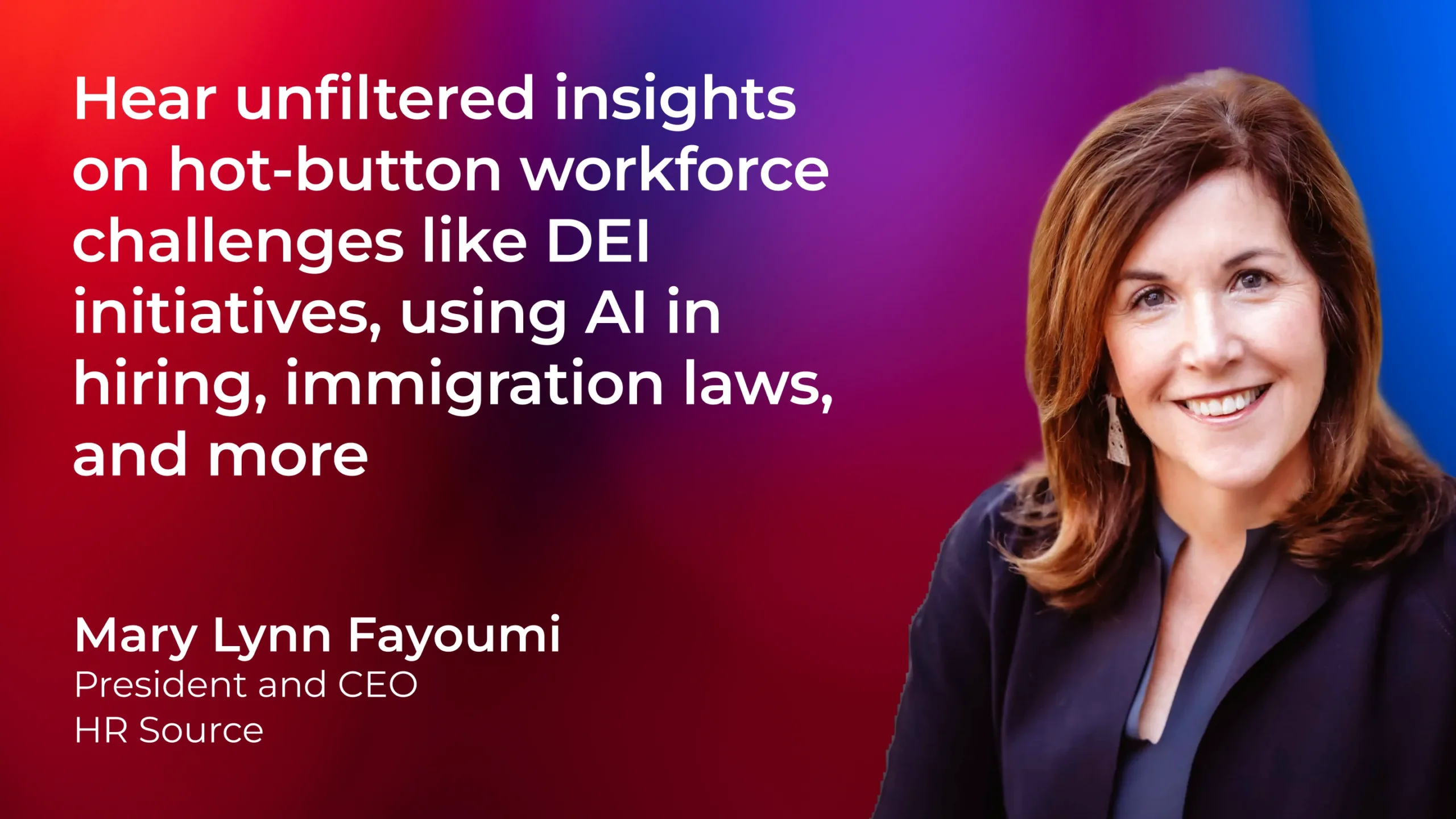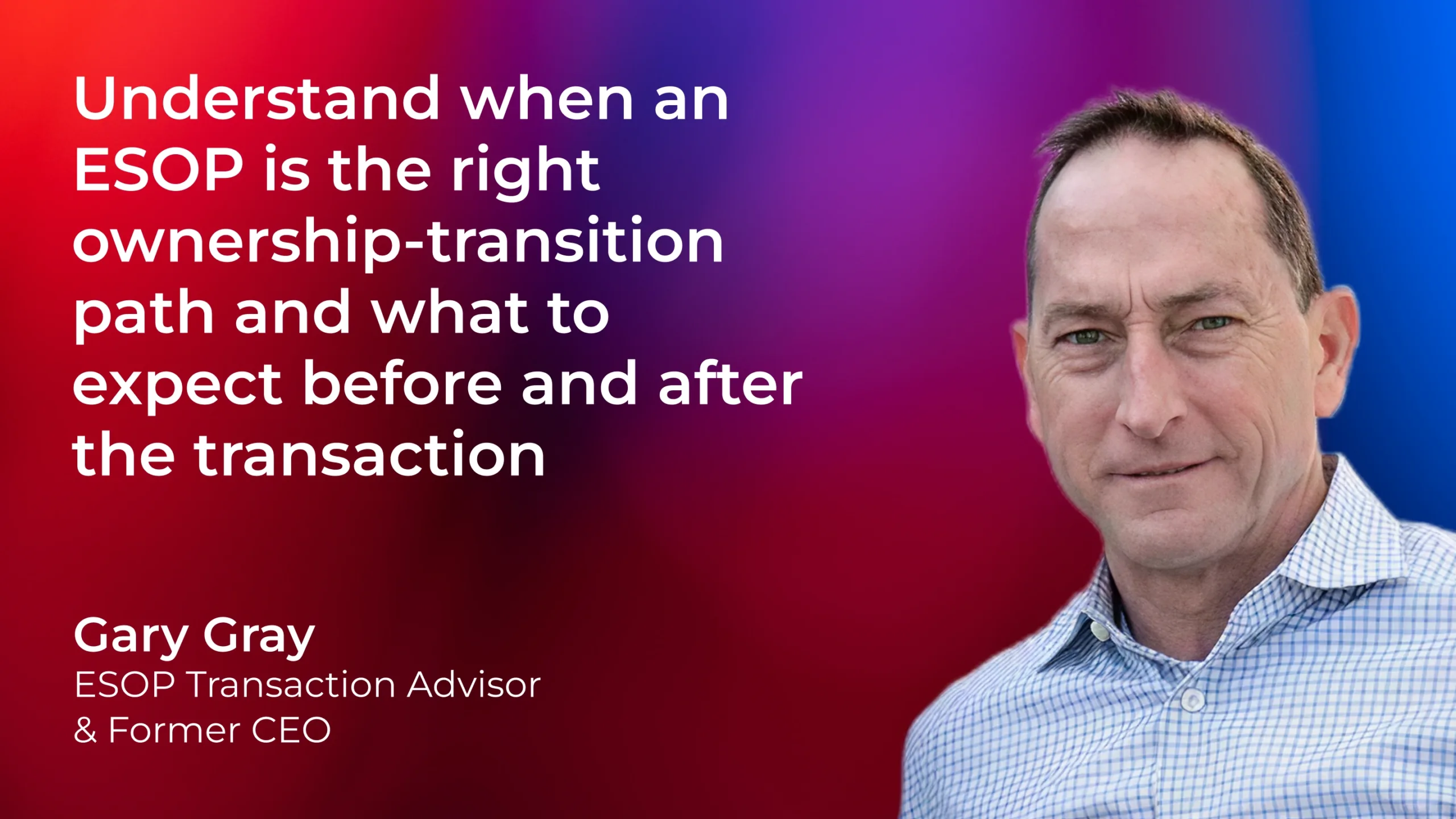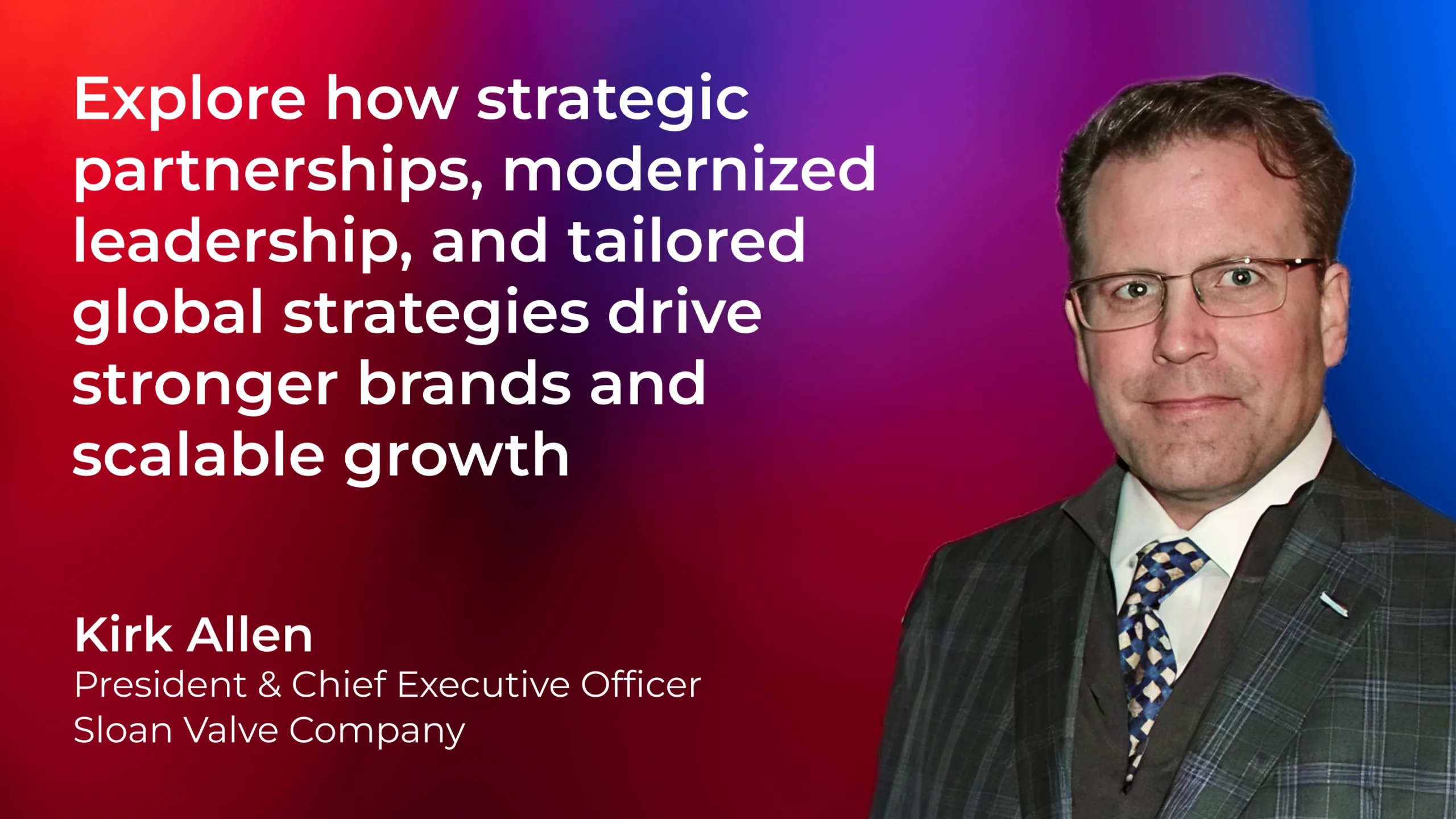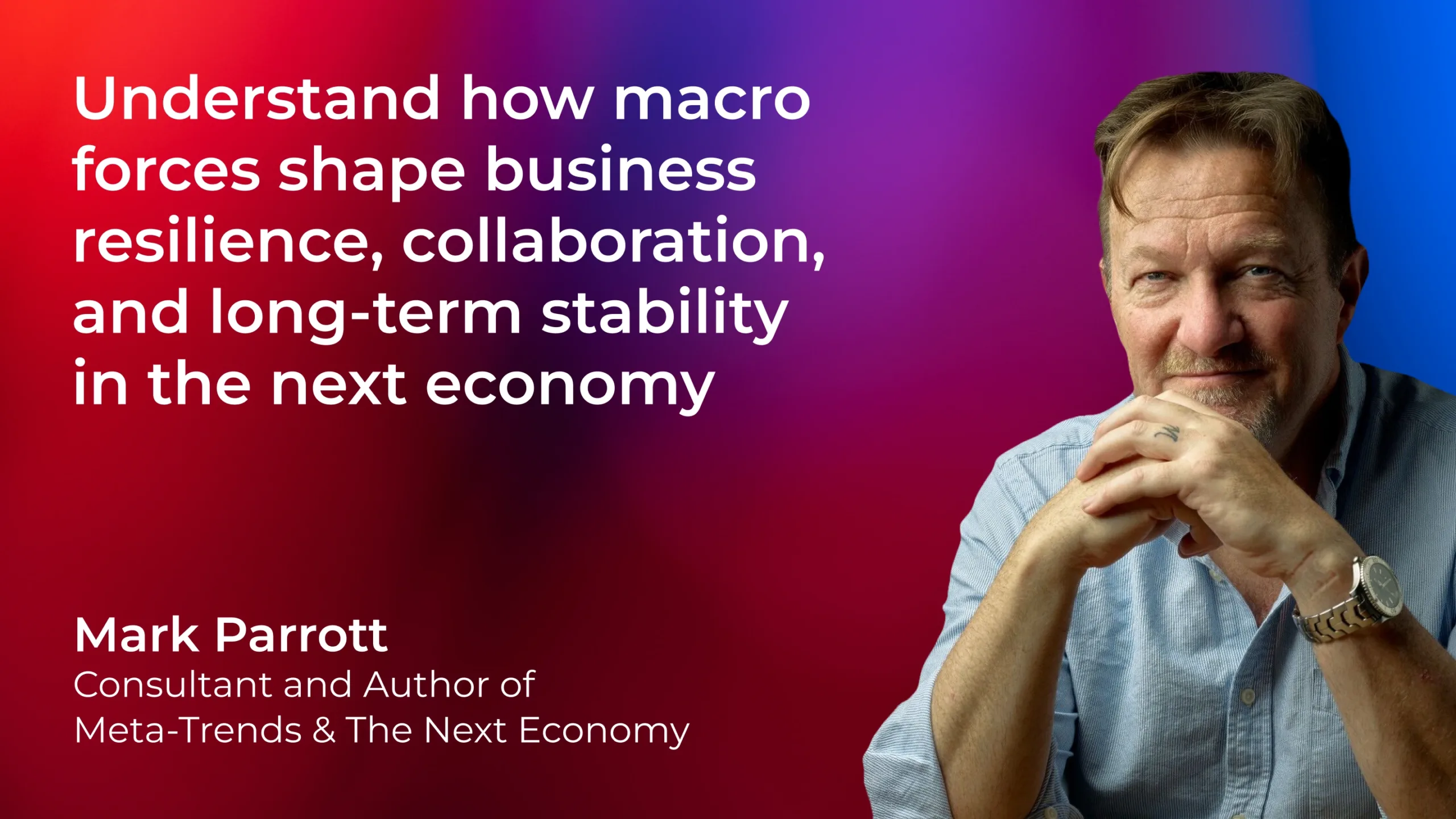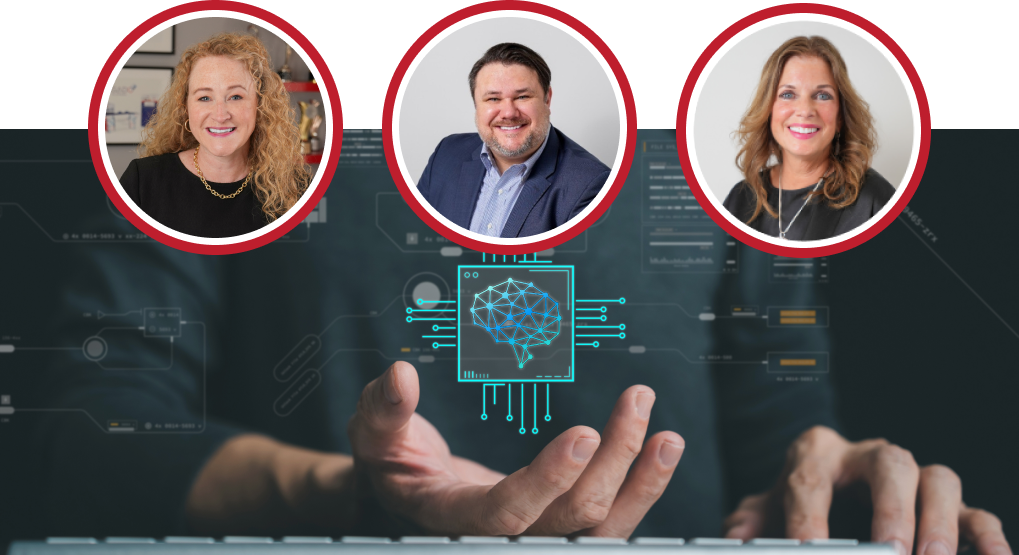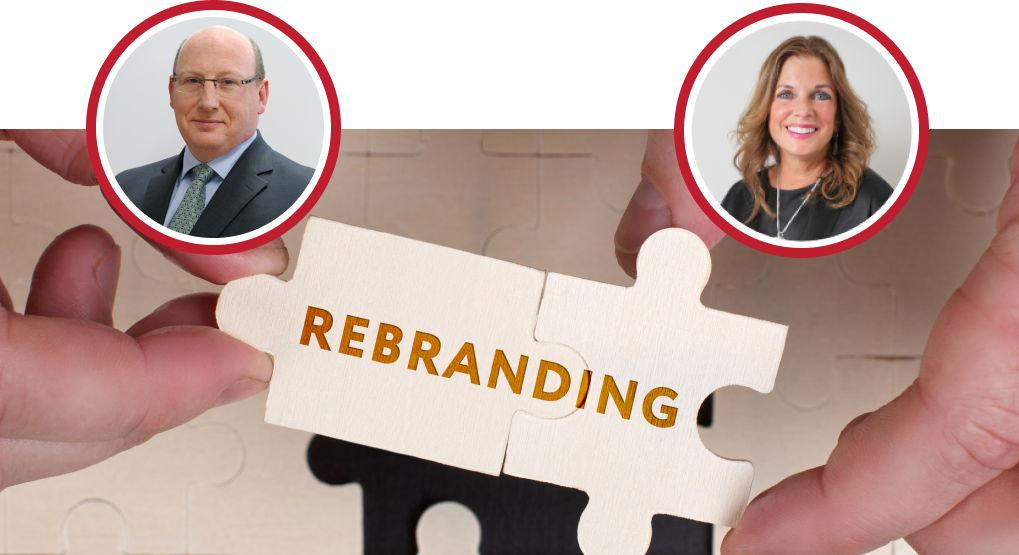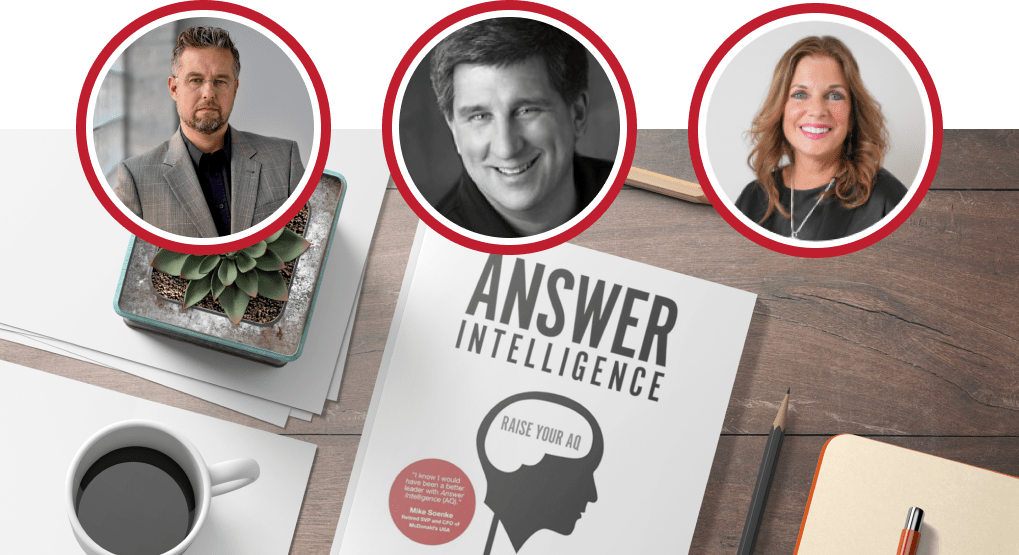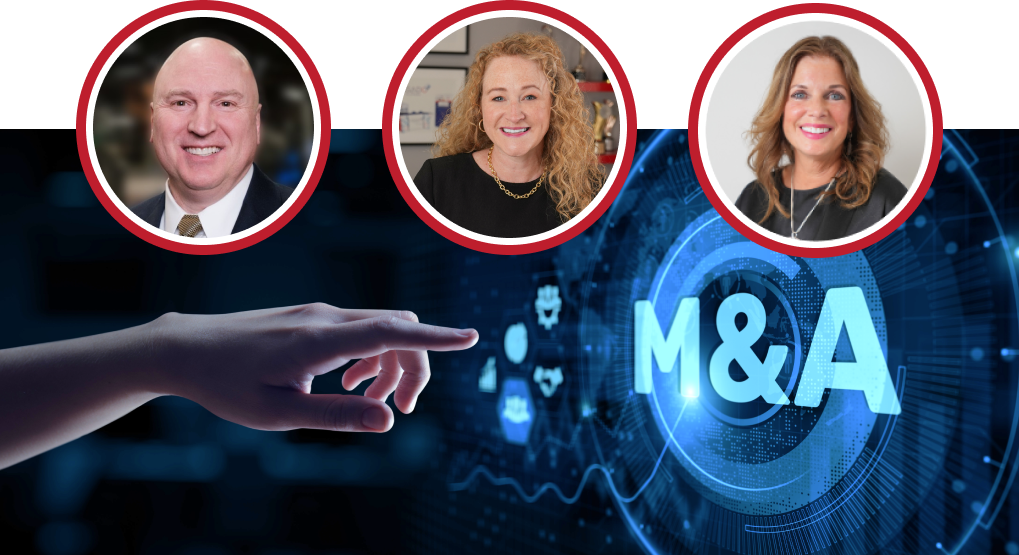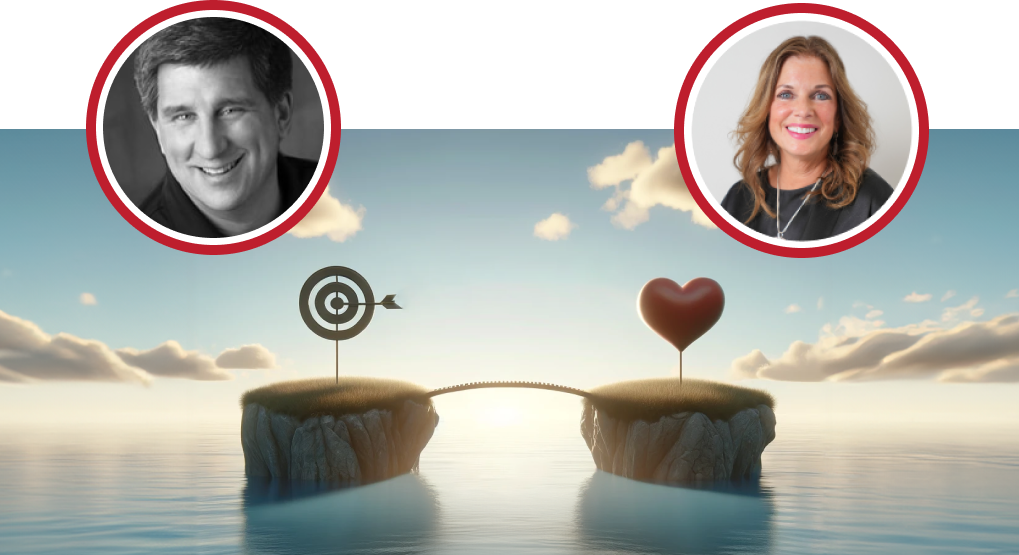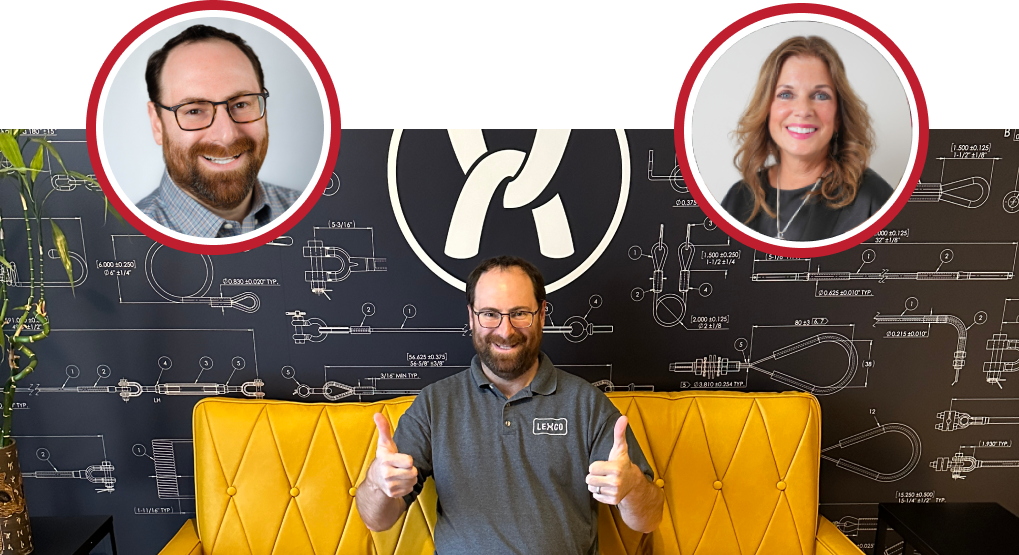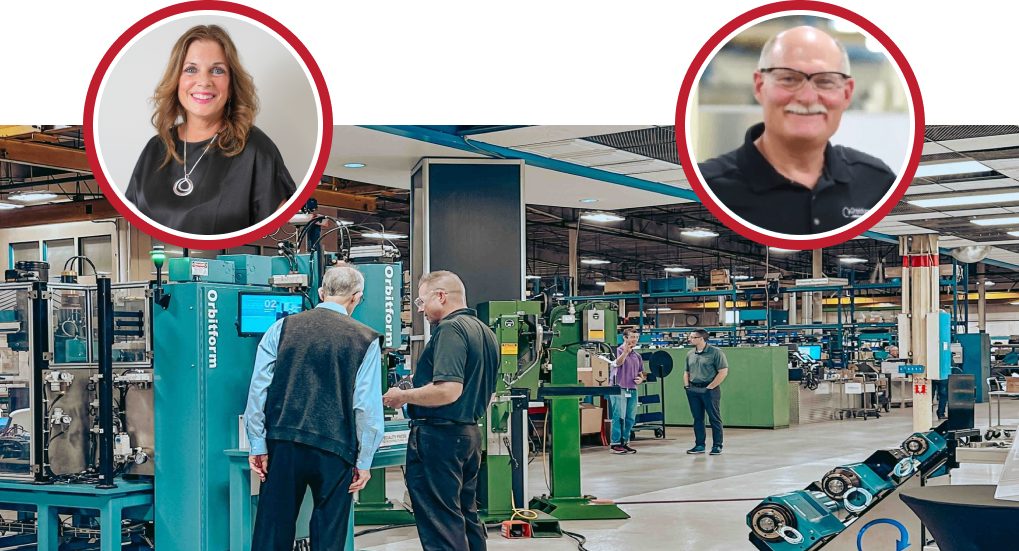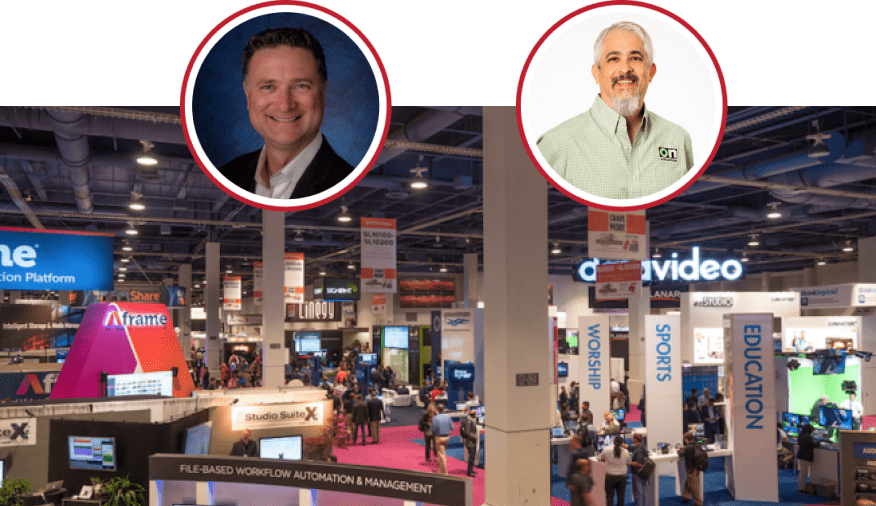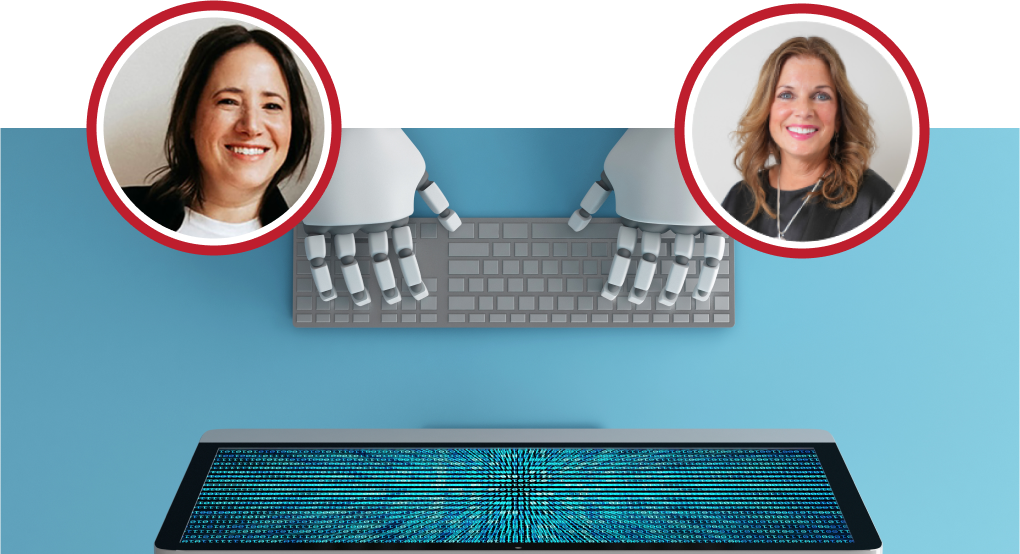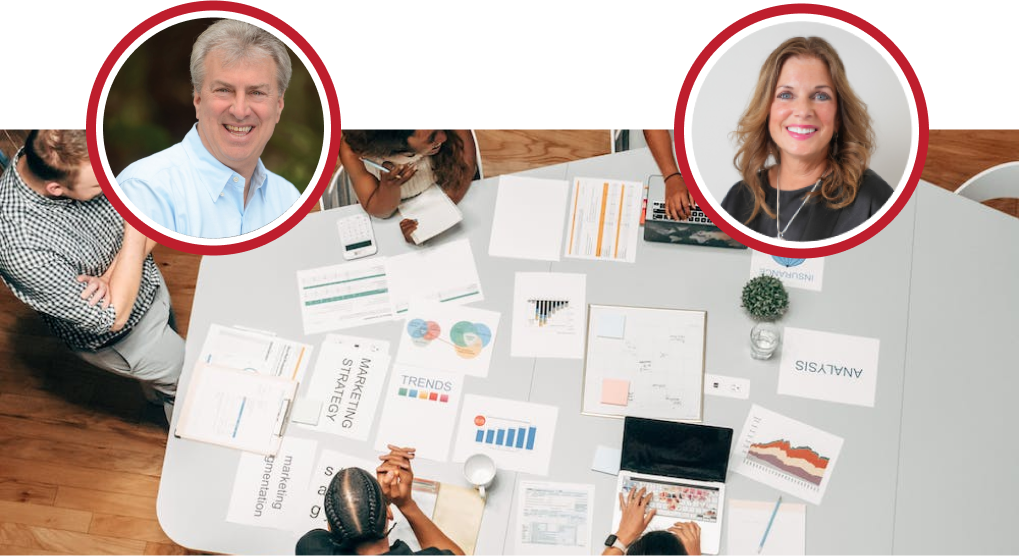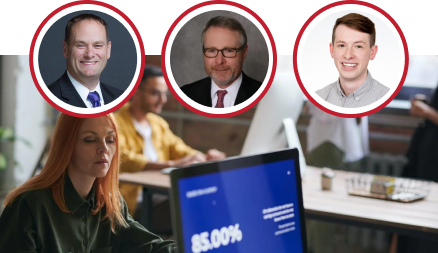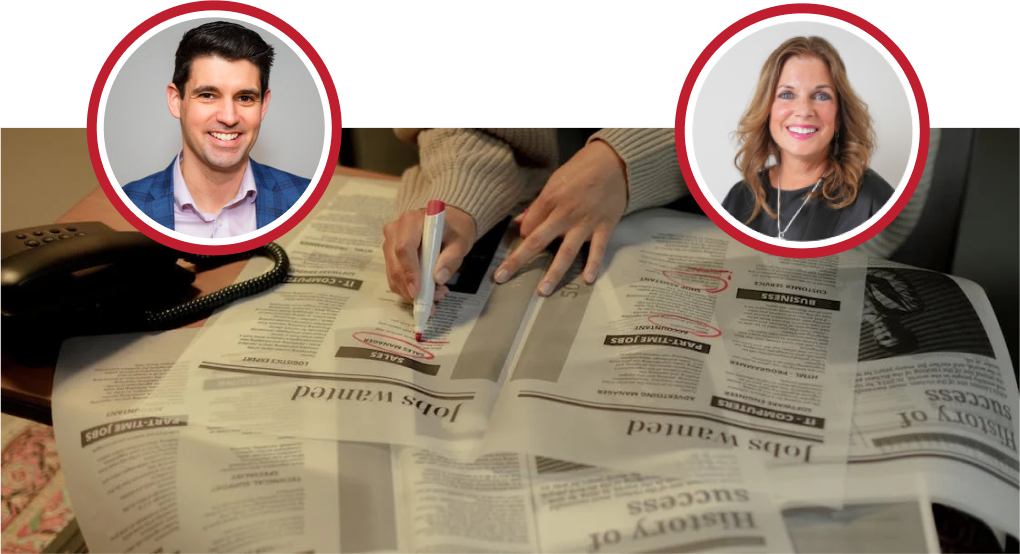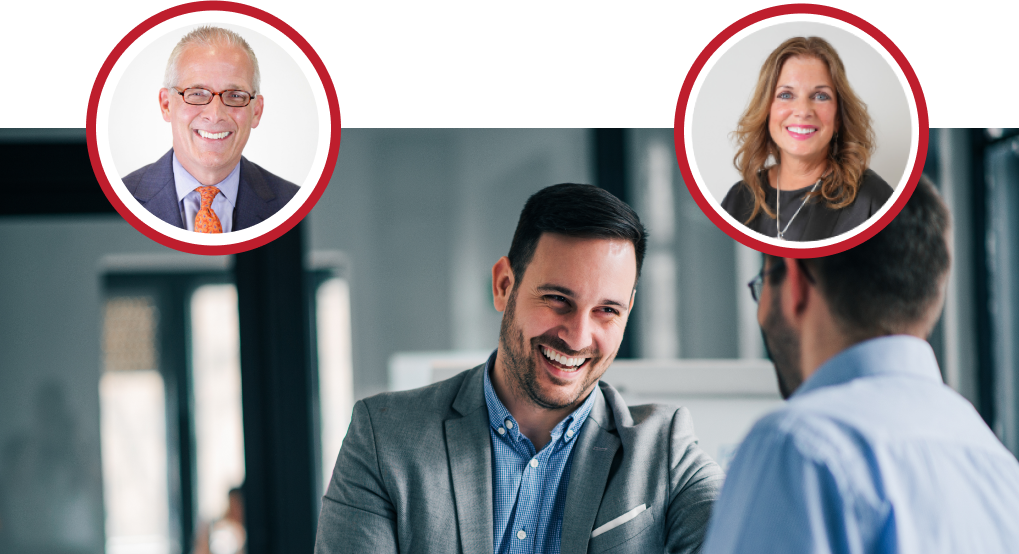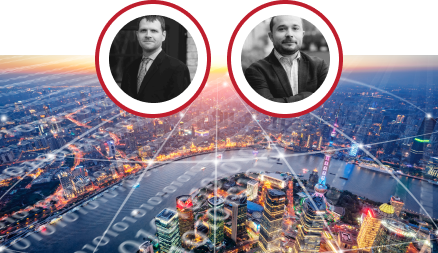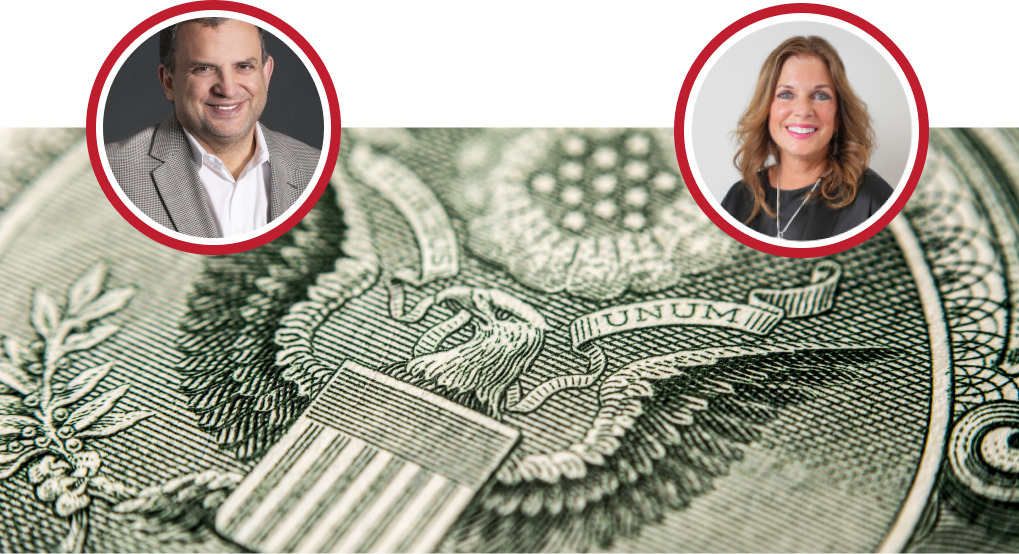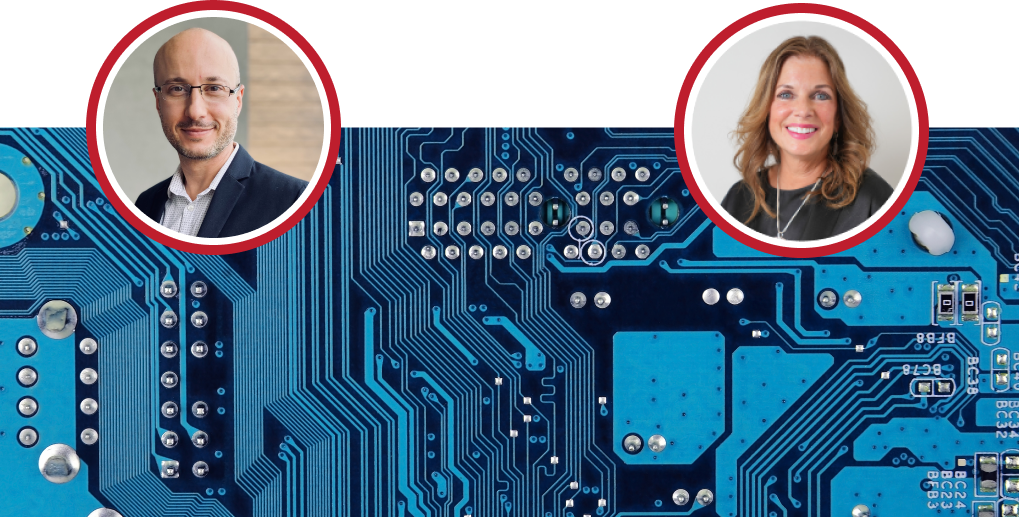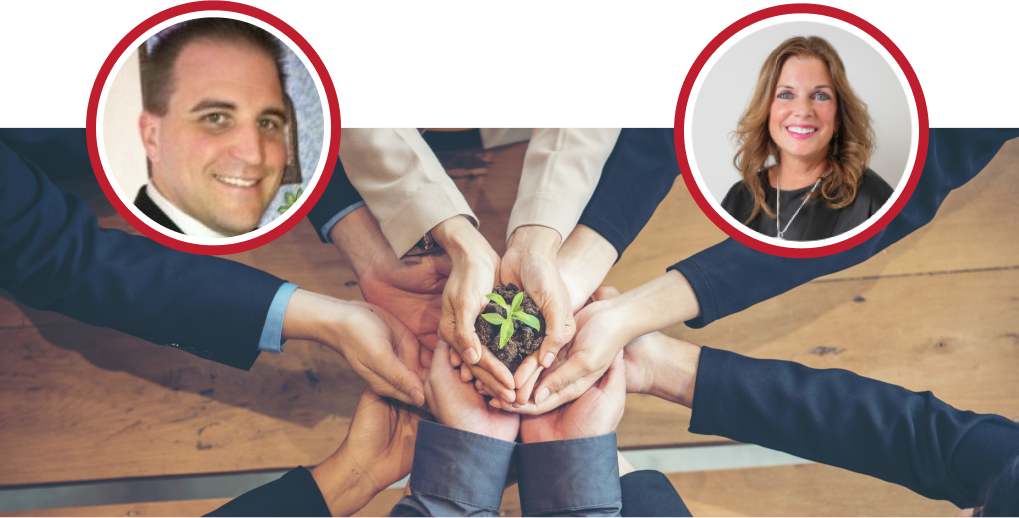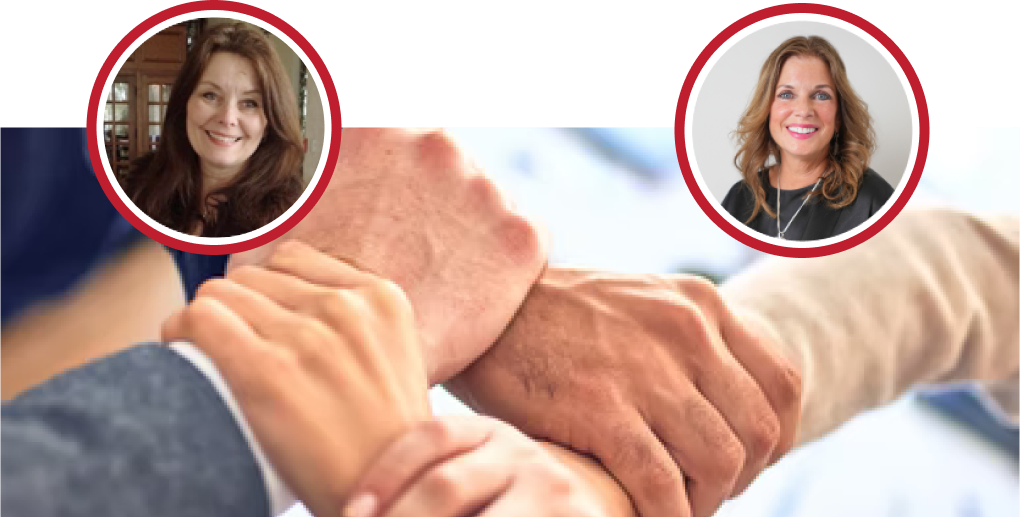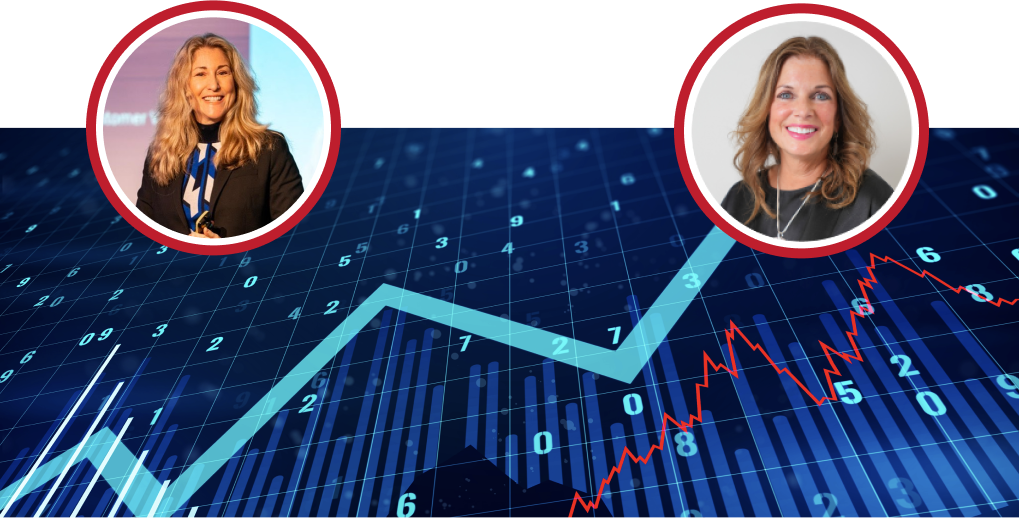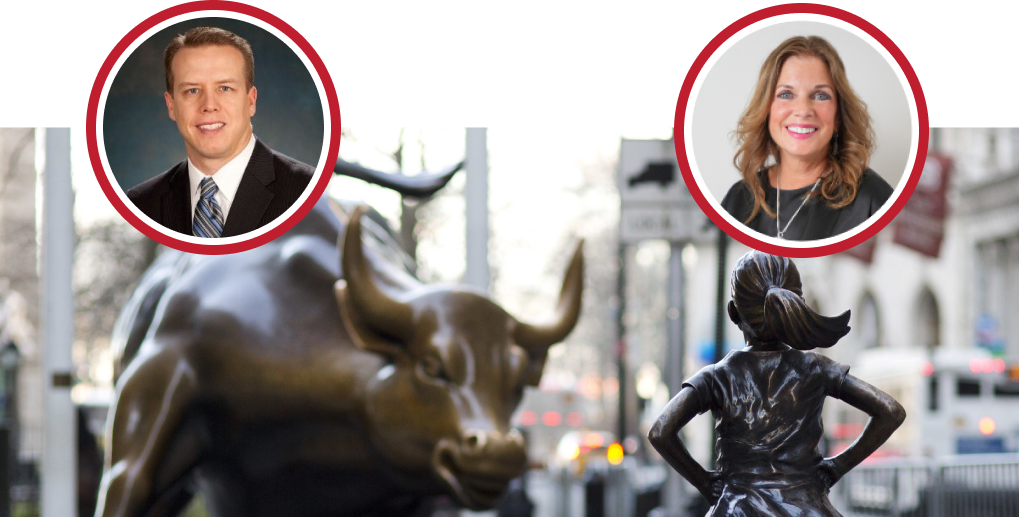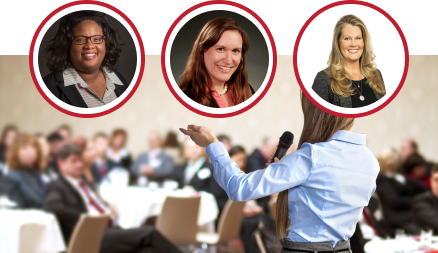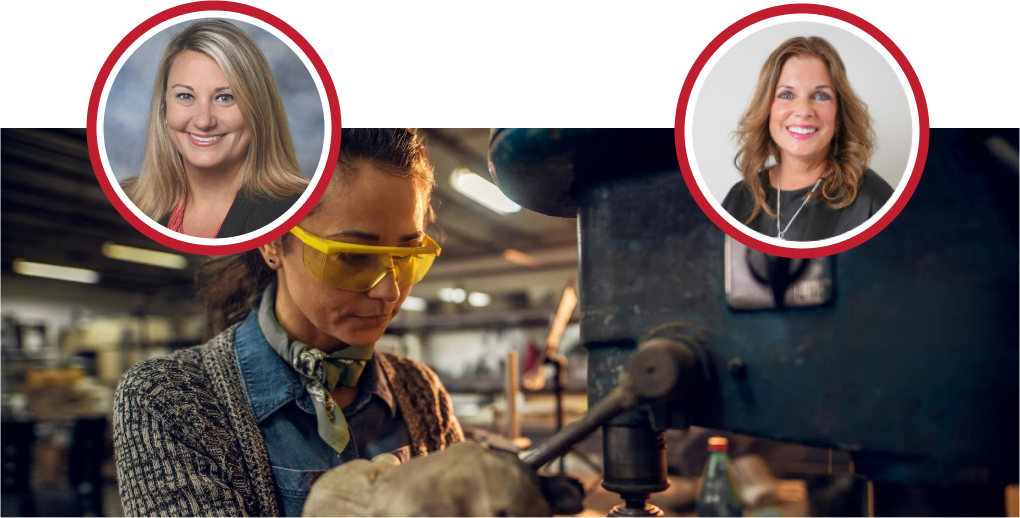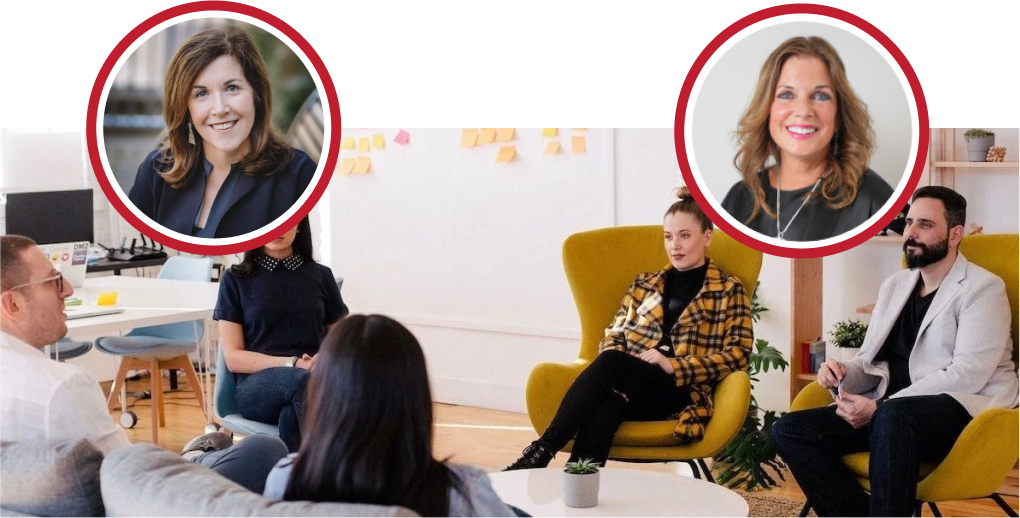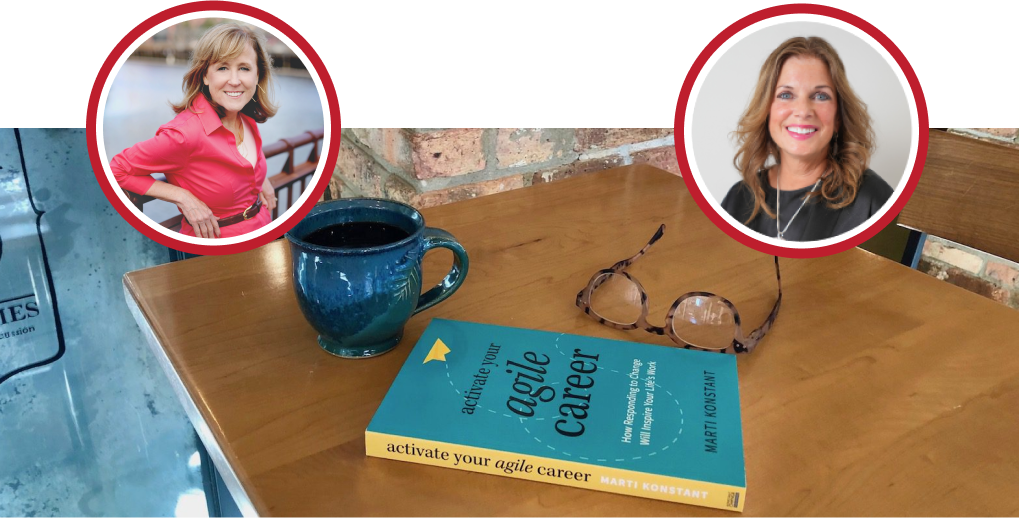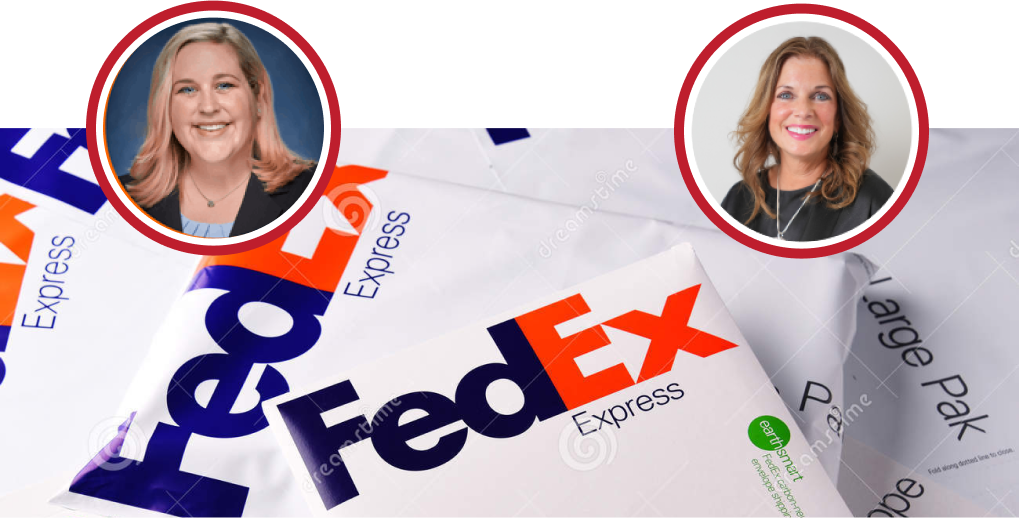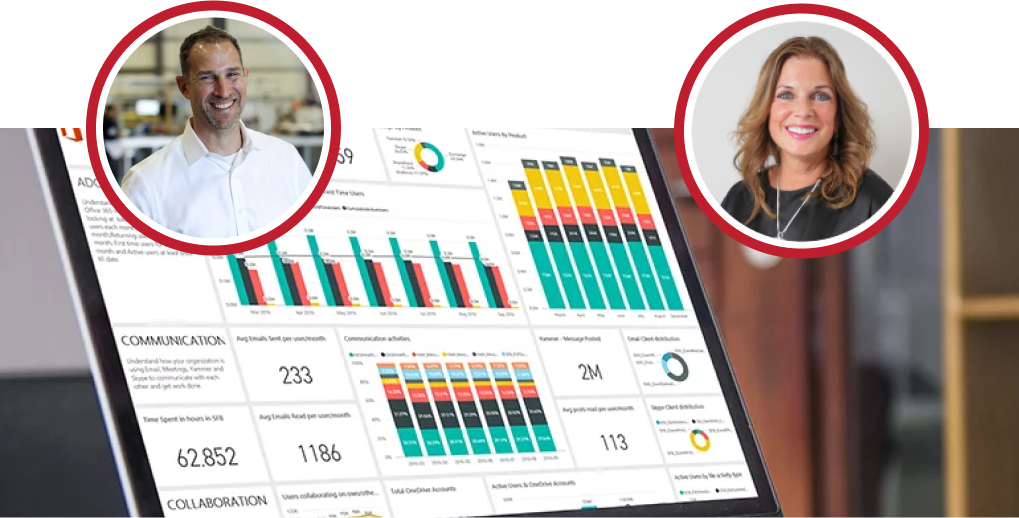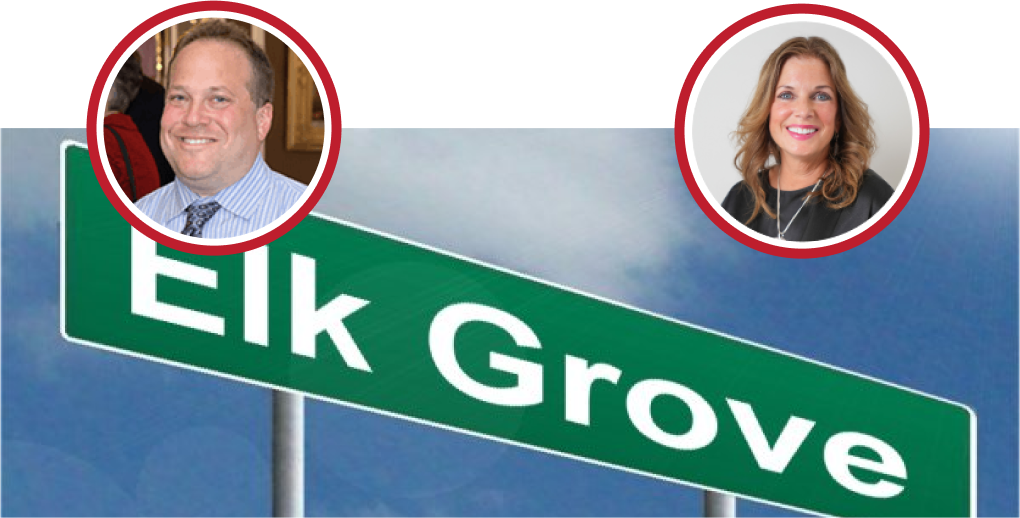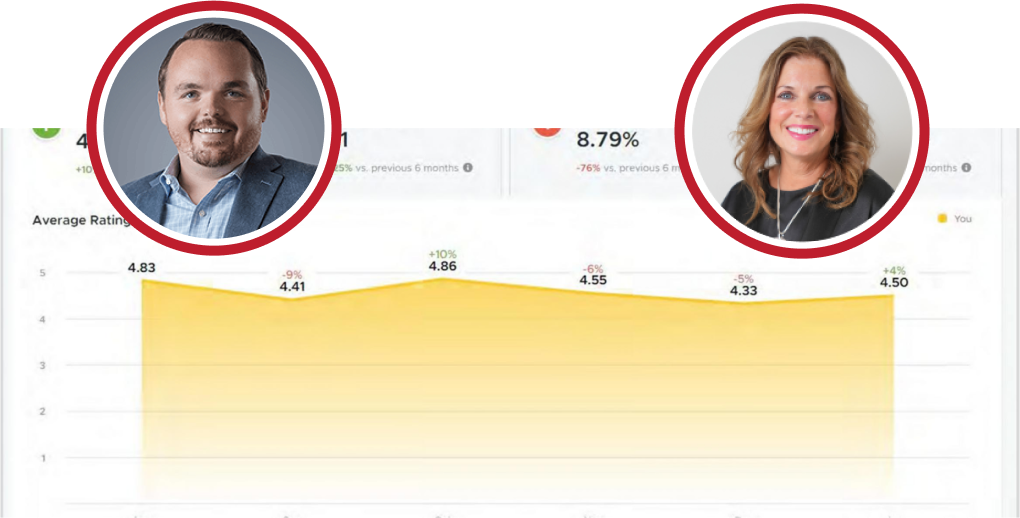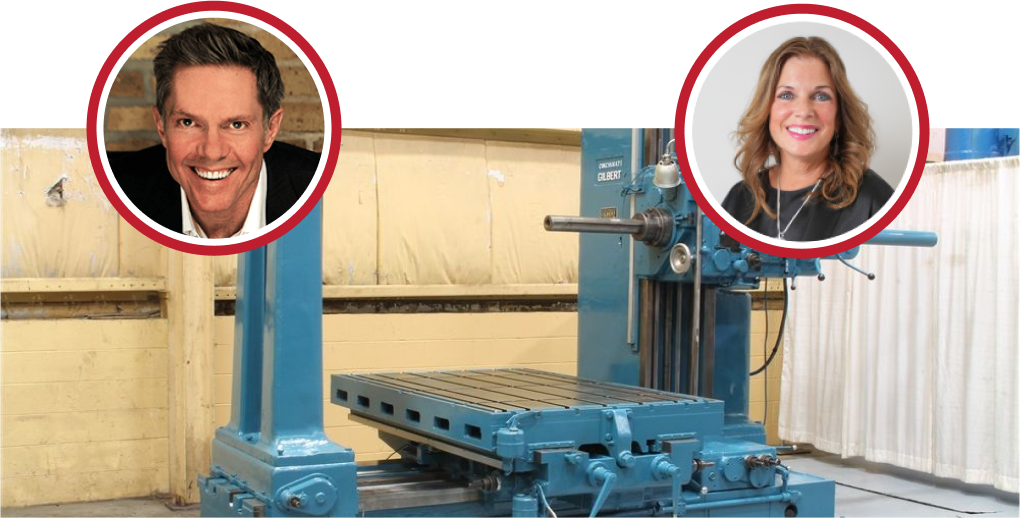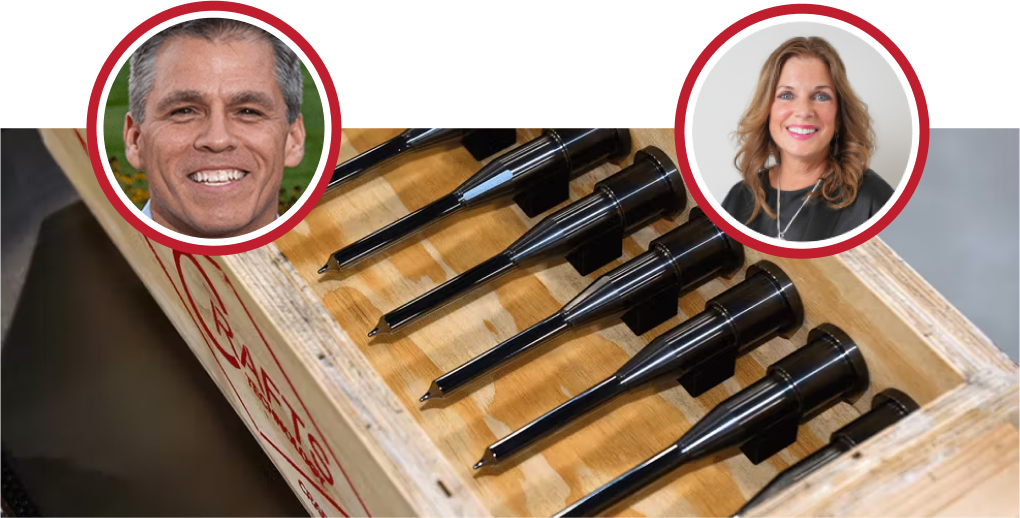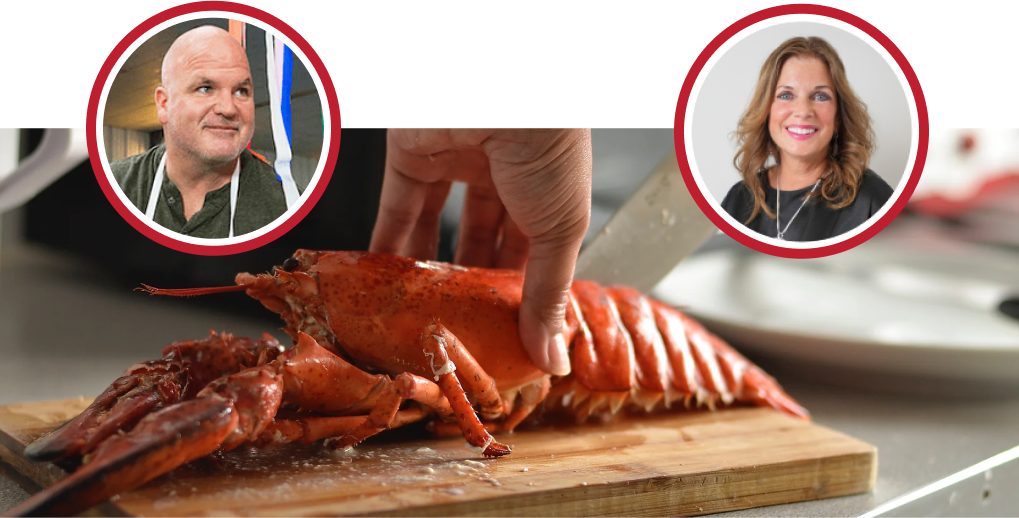Kathy: Welcome to business as unusual. This is the live stream where we delve into the pressing issues and emerging trends shaping the business landscape. We’re going to get started in just a few minutes, so if you have questions, please feel free to add them to the chat, and we’re going to try and get to all of them during today’s session. I’m Kathy Steele, and I’m the CEO of Red Caffeine. And for those of you who are unfamiliar with red caffeine, we are a growth consultancy, and we build and execute grow-to-market plans for ambitious mid-market companies. Our service offering includes A fractional team, which we’re going to be talking about a lot today. A senior-level marketing leader really leads that team to enable a business to scale rapidly without hiring a wide range of full-time staff members. As I mentioned today, we’re going to be talking a lot about how you might enhance your business with fractional employees or an actual team. So as you know, Mary Lynn and I were starting to think about some of the content for this calendar year. This topic was really sparked by a conversation that. I was starting to talk with prospects and with customers who have said they haven’t actually heard about this type of staffing option. And so as I mentioned, our guest Marilyn Fayemi, who’s the President and CEO of HR source, I think she would agree with me on that. The traditional, like full-time hiring and employment, is no longer the only choice in our employment options. So, wealthy fractional service providers have really existed for a long time. I think I hired my first fractional CFO probably 15 years ago to help me with it. You know, think about some ideas around compensation, variable compensation, because I’ve never done that before, and we actually had built a C-Suite interim CFO platform like an Upwork for the. Suite almost 20 years ago. So, it’s been in this space for a long time, but I think the last few years have truly accelerated the change in how we think about our workforce now. So, just to kind of set the table, if this term is new for some of you, a fractional service provider does sometimes get referred to as a managed service provider, and it usually refers to a professional or a team who offers their services on a part-time basis to multiple clients. So the arrangement allows a business to tap into the specialized expertise without really not having to, you know, have a full-time commitment. Or even the budget to hire somebody full-time. So, some of the most common roles we see are in the C-Suite, CFO, and CMO. O CIO, COO, and sometimes even CEO, I mentioned, a lot of times interim CEOs are brought in when a business is going through a major transition. But in terms of fractional teams, those are types of organizations that usually focus on a core function of the business, like finance and accounting, sales, marketing, HR, and I. Tea. So hiring a fractional resource can fill specific needs; if you’re looking to prep your business for sale, you may want to bring in a CFO who specializes in something like that. Or if you’re looking to have a team relationship, that might look like more of a multi-year. Where the provider becomes more integrated into your business operations, so before we jump in, we are thrilled to have Mary Lynn back today. Marilyn, tell us a little bit about what’s going on in your world these days before we jump into the topic today.
Mary: Well, great to be here, Kathy. I always enjoy working with and partnering with Red Caffeine, and with you particularly, we always have such engagement. And interesting thought provoking conversations about what’s happening in the workplace and the business world. So this is a topic that, you know, really has meant a lot to HR sources over the years. We are always looking to find ways to help employers improve their performance, and certainly, providing a variety of solutions in different ways is part of our evolution and has been part of our ongoing challenge and opportunity. And you know, when you were talking about 20 years, 15 years, I think somewhere between 20 and 25 years ago, we started having our first request for, hey, don’t you have someone on your team that could come out here and help us with this project or to figure out? Whether or not we really need an HR department. Do you know how we might fill in for a leave of absence? Our HR directors are on maternity leave. So when you ask about what’s going on now, what’s always going on at HR, the source is trying to figure out ways to help our members. And so, you know, right now, a lot of them are trying to figure it out.
Kathy: Right.
Mary: What’s happening with AI? How can they, you know, give their baby boomers a few more years to pass on all that intellectual capital to the next generation? How can they get people to return to the office if that’s something they’re still challenged with? How can they comply with all of the new?
Kathy: Right.
Mary: Labor laws: How to gear up for the pay transparency legislation. There’s just a lot happening for employers, including the Paid Leave for All Workers Act. So there are so many things to keep me up at night, as well as other employers, but it’s an exciting time with a lot happening and a lot of interesting opportunities for employers.
Kathy: Yeah, you know, it’s sort of interesting because we do share some clients, and I just was checking in with a client that had to leverage your, you know, your fractional resources, and they’ve made a full-time hire. So I want you to know like we’re always just looking to try, and you know. Or augment what we’re doing for a client, or be really good, you know, referral partners when there’s a need and a gap in their business. So let’s think about that as we kind of step into what are some of the advantages of fractional service options, especially I, I guess you know, I think we both focused on that. Mid-market space. So, what are some of the things that you’re seeing?
Mary: Well, it allows you as an organization to. Probably get access to someone at a higher level. Someone with more experience may be, particularly industry experience and not have to pay a full-time salary and benefits so that you can tap your toe in the water a little bit. You can have someone either for some time you could have someone full-time for some time, or you could have someone part-time or a day or two a week. For example, I know both of our organizations benefit from partnerships, where different professionals. Rules on outsourcing providers’ teamwork with our organization. Depending upon current priorities, current issues, and current budgetary constraints. And so there’s just so many advantages. Suppose you’re in a growth period. The start-up period is a transition period to access. Really seasoned, experienced, specifically skilled professionals in a way you might not ever be able to.
Kathy: Yeah.
Mary: Have you heard of a traditional hire?
Kathy: Yeah, I think for us, I mean what we see a lot is that our types, our clients, if somebody’s looking at red caffeine for this type of relationship, that they just don’t have that experience or expertise on their leadership or management team. And the ability to build it and scale it quickly, it’s just not, it’s just way too much of an investment. So those are the types of things that. These are some of the key indicators that businesses are coming to us, and I agree with you. Like you know, those are the ways I think about hiring when I’ve got a specific need or if I’m trying to fill a gap in our organization and I really can’t justify a full-time hire or a full-time hire not really going to. Meet my entire needs. So, are there other indicators of businesses? Are you kind of like the trigger points that you guys are seeing in terms of that type of, you know, that gap or need?
Mary: Definitely, so one is bandwidth, so you know I’ll be using HR because HR professionals and fractional HR are near and dear to my heart. But in many small organizations. Growing HR responsibilities are handled by an executive director, a president, and an owner, often as CEO. And they have other priorities and other challenges that they could be better spending their time on. So the burden of these HR. Projects HR compliance issues, day-to-day employee relations, and recruitment start to be a burden and require them to be working. A lot of extra hours feel like they’re spinning their wheels, like they’re making some poor decisions because they don’t have the experience or the resources to really do the job right. And so that’s often that pain point where we get a call saying we’ve had a job posting up for six months. We’re not getting any decent applicant flow. We keep interviewing candidates. We just need help. HR responsibilities are just taking up too much of our key executives’ time. It’s becoming a burden, and we’re not working or attending to more strategic matters in our organization, so we could really use some help.
Kathy: Yeah, I mean, I feel like that even just in both HR and marketing per se. And I would assume that we’d hear that in accounting and other fractional, you know, types of experiences. That the roles have just become so complex. I mean the need for a marketer like, as you said at the top of the conversation, to understand how to leverage AI and some of these emerging technologies, the need for an HR team. I, I mean, I’ve known huge organizations that have like a four or five-person HR team that is handling. Compensation and hiring and recruitment and like it’s like that, that growth and need to really think about your talent strategy as a strategic part of your business has evolved to think about your talent strategy in terms of a marketing communication objective has really evolved so. It is, I think, the complexity of running a Business Today, and then, don’t even get me started on some of the legal and taxation and all those things that we’re sort of faced with. So even for us, we might have had one person in a specific role handling multiple clients for our clients like I think about SEO like we used to have like one person. Now, we need a team of people because the complexity of that need has just so evolved. So it is really interesting.
Mary: It’s dynamic, and it’s hard for it. Sorry. Yeah, it’s hard for someone inside an organization who has inherited other duties as a sign, whether they’re in marketing or accounting or HR, to stay up to speed with everything that’s happening. And so to have someone in a professional capacity who makes it their job.
Kathy: Right.
Mary: And it’s their, you know, professional expertise and obligation to stay up to speed on everything new and different in the marketplace to be most effective. You know, once you’re spread incredibly thin, the ability to do that effectively over. You know, various parts of your business become increasingly difficult as businesses grow, become more sophisticated, or have a variety of, you know, business initiatives, priorities, and goals that require really dedicated expertise and attention. Excel in.
Kathy: Yeah. No, I mean I. I think you’re saying that there really aren’t unicorns, that those types of people, although we look for them, we’re constantly trying to make people become unicorns. It’s really just not that realistic. You know, maybe a very short time frame. You can wear these multiple hats, but it’s just not sustainable in the long term sustainable way to run your organization. So, let’s talk a little bit about what are some of the efficiency gains that could be had without compromising on the quality of the service level that you’re getting. What are some of the things that you’re seeing?
Mary: Yeah. Well, first of all, if you hire a. Professional, experienced, high-quality fractional person. They are going to hit the ground running in a way that’s different from onboarding a full Time Team member. You know they’re going to have the ability to focus. In quickly and effectively, and briefly on. One dealing with the priorities and the objectives at hand, they’re going to bring to the table experiences, processes, and known success strategies that they’ve used in other organizations. They’re going to acclimate themselves quickly. And speak the language of the business. In order to make sure, because they’re going to be measured in. Much quicker and much more specific ways than a full-time employee would be. So I think one of the challenges employers have when they’re making this decision to hire fractional is to make darn sure that they have. Really been specific about how the project and how the engagement is scoped and also what the metrics are to determine whether or not this is a good fit for the Organization.
Kathy: Yeah, I mean, I couldn’t agree more. I think you know some of the other, you know, efficiencies or optimization opportunities. I just have that fresh perspective, I mean, I feel. As you know, I hate to keep going back to AI. But there’s just. A lot to think about in terms of the types of things that we’re being faced with understanding. And you know, when we think about a or, we’re not just thinking about it from how we leverage it. We’re thinking about how we are, you know, talking about how we’re using it with clients, what’s our stance on. The utilization of AI and our business model. Those are like 2 completely. Different objectives for the organization. You. You spoke. A little bit about some of the challenges that our businesses are facing, so. What? Are there things that you know we should be thinking about when we’re thinking about? Hiring, vetting, or onboarding a fractional person or a fractional team.
Mary: Why? Well, there are. There are many, and you know the reasons that organizations consider fractional options vary. So, as you and I both know, a lot of times it’s because they. Have experienced turnover. Or retirements or transition amongst more traditional team members, and they’re having mixed results or no luck at all in the employment market. And so that causes them to scratch their head and think, is there another option? And that’s another reason. Are they starting to get to a level in their revenues or in their employee count where they realize that their team members are? And I spoke to this a little bit ago. They are spread too thin, and they need to bring in subject matter experts, but they’re not sure if they have the budget or the workload to warrant a full-time professional. That’s another reason. A third reason would be that they have a temporary challenge they’re facing. Either they have a new product they’re pursuing, a new market they’re trying to expand in, or a new one. Initiative that they’re really focused on, and they just believe that they’re too soon to determine that they’re ready to staff it on a full-time basis. I’ll give you a couple of examples at HR source, not only of how we’ve used fractional HR support or fractional. Support, not HR. And then how we’ve been called to help other organizations. So, years ago, we struggled with hiring IT professionals who really had the breadth. And capabilities to assist our organization in every way with our technology. We had a lot of growing pains. We were increasingly trying to figure out how to deliver our products and services and information, harnessing the best of technology, and we would inevitably only have a budget to hire one or one and ah. Ask IT people, and they were either systems or database people or desktop people, but they didn’t have a full range of expertise or real interest. So we decided to outsource to AT&T, which is our IT partner, and they have individuals who specialize in every area.
Kathy: Right.
Mary: And we use them on a fractional basis for our specific needs. Many of our member organizations are growing and have never had an HR professional on staff, but they’re bumping up against, you know, 50 employees, and now a lot of organizations are hiring their first HR people at a much lower account than 50. It used to be. This. It was kind of a magic number because a lot of employment laws kicked in at 50, but they called to say, you know what, we just feel like we don’t understand how to do recruitment in today’s world. Like we don’t understand, indeed. And job boards, we don’t know how to interact. We don’t have one. In an applicant tracking system and then others say we have just so many employee relations challenges. We don’t feel like we have internal systems or policies. We don’t know how to support our managers and supervisors; our training and development efforts are weak, and so we would just love your assessment as to whether or not we’re at a point where we need full-time HR. Or whether or not you know working with a fractional provider like HR source is enough, and can you help us figure that out?
Kathy: Yeah. No, I mean at the same time as I mentioned earlier, we had hired a CFO to do some special projects for us. I know even in my, like my CEO Forum, we’re talking a lot about CEOs like there’s a really big gap in the marketplace right now for operational purposes. Is there somebody who really can manage this shift? Well, the leader is focused on the vision of the organization and its growth. But you know, some of the things that red caffeine gets brought into is consulting work. We, you know, we have recently done a. Project where one of our clients was going to be making an acquisition, and they needed some guidance on how to integrate those new organizations. Should they be a branded house, or should they, you know, all roll up onto the 1 organization but as well in, you know, another situation where they just don’t have? That skill set on their leadership team and, as I mentioned earlier, it’s like, are you going to build it or are you going to buy it? So, what is the most effective and efficient way to go to market? And I think that you know what hit me in terms of just kind of talking to others in the marketplace was I spoke to a CEO, and I’m like. So what made you? You know, you’ve always hired this internally before what really made you pull the trigger on a fractional CMO strategy versus, you know, another CMO employee, you know, full-time employee. And he said, When they laugh when they leave, they. We just lose. Everything, all that tribal knowledge, walks out the door with that one person, and then we’re starting from scratch again. And I think for us, when we think about, you know, the offering that we provide, you know if somebody leaves you. Know that’s that. It kind of still stinks. You Know you like to have this whole team ecosystem that you’re used to working with, but you’re not losing everyone. You still have that team intact. You’ve got a methodology to lean into, so there’s might. It’s a. A little bit of a bump, but it’s not like that. You know, a gaping hole. The hole is left when somebody departs the organization. So you know, when you think about that in the landscape of hiring, that is huge, that is huge. We’ve all lost that. You know, the guy that knows everything about your business and you know he’s in this and that and that and and to be able to kind of protect against those types of big. Deficits in your business operations are, it is just a really important factor. I believe you know that you just don’t have those major dips because one person holding out holds all the keys to that type of information.
Mary: Right. And again, if you’re working with a firm like yours or an association like mine where we are deep? Bench strength. You’re not relying upon the expertise and skills of one individual. With all due respect for individuals who are out there with their shingle up doing consulting work, they have an important place in our market as well. But you are not going to experience the loss of expertise. I mean, if someone is on my team. Decides to leave HR source. We’re going to still be there for our members. We’re going to fill those shoes still, so we often are.
Kathy: Right.
Mary: We change key players on our projects, either depending on the needs of the Member or the needs of the client at any given time. Our availability, you know, supply and demand mean this is a form of collaborative consumption from which many organizations are benefiting.
Kathy: Right.
Mary: From someone or our organization’s expertise, so I couldn’t agree with you more, Kathy, that. That pain and the upheaval caused by the turnover of a given individual, who has tonnes of experience or holds all the cards with regard to what’s been happening, is flattened out considerably through using a fractional model. So you have. You know, I explained some of the benefits on the front end of having someone come in who already has a lot of experience and go right to work. But you also have a lot of benefits on the back end in terms of much less volatility when you’re working with it. An organization that’s providing you with fractional HR support or fractional marketing support, fractional IT, you know, telling them.
Kathy: Blank, right? All the operational functions. So we talked a little bit about challenges because I. Don’t want to make this all. You know that the colored glasses viewpoint causes challenges. I mean, we both are very invested in the type of culture that we’re trying to build in our organization. So I think you know what? What are you doing, or what have you seen clients do that are entertaining? A fractional relationship is in terms of like? How are you going to work together and still share those value sets and cultural aspects?
Mary: Right. So I think it’s a shared responsibility between the employer as well as the client who is choosing to hire someone from your team or hire your organization to fill a role. There’s. A much higher likelihood of success if. When you use a fractional team member of any type, the organization gives them access and makes them part of the organization. So I have a lot of empathy for our team members in fractional roles because they not only have to learn. Our HR source. Team and our internal systems and our culture, but they also may be working at three or more other organizations where they have to get to know their culture, build relationships, have to learn their technology, and learn their communication style. And be able to turn on a dime if they’re serving a number of different organizations, so it’s not everyone. Skilled or capable, or possesses a personality or behavior, patterns or strengths that lend themselves well to being in a fractional role. I think there’s kind of an; I’d say it’s an urban myth that hey if you retire, anybody can do this in there. You know, in their retirement years, we’ve certainly learned. It’s a particular type of individual who is capable of being successful in a fractional role. Also, not every organization is particularly adept at working well with fractional team members.
Kathy: Right.
Mary: Right. So sometimes we’ve had experiences where, you know, they weren’t embraced in a way that helps them succeed, right? They’ve been left out of critical communications, they’ve. Then, you know, walled off, they’ve been not given the type of data or metrics or support that they need internally. Information is not shared, so really, it has to be a concerted effort on behalf of the person who’s in these roles, as well as the organization that’s hiring a fractional team. Members, to make it a success, it doesn’t happen automatically without considerable effort.
Kathy: Yeah, I 100% agree. I think you know there’s a lot of tech enablement that can make the experience a lot more manageable. And then I think about, you know, things that are coming on the horizon. And we decided that we weren’t going to like it. Go deep in talking about legal and and some of the you know the you know the laws around staffing in this in this way. But there are going to be more and more barriers and limitations put on us because, you know, there is some real benefit to employers but not as much benefit. To the government and in our states in terms of taxation capabilities and so on. So I assume I don’t. I’m not as into it as you are, but I assume some things are coming down the pipe. Is there anything that’s top of mind that you know we should be considering now that it is a challenge?
Mary: Well, I think you know long for many years, employers have. I Was a little confused. I’ll be light and understanding because there is a lot to understand, but you know, the independent contractor laws and guidelines and case law have been, you know, a little confusing for employers. And you know, that’s kind of been stirred up again at various levels in the legislative process. And I mean, I’ll put in a plug for our organizations, you know, we make it simpler for our Members and you for your clients because you employ fractional team members. Other organizations really use more of a brokerage approach.
Kathy: OK.
Mary: Although brokering and all of the people who are working in these roles. Girls are truly independent contractors who have their businesses, and so the organizations that contract with these individuals might need to take more care and concern with whether they are determining the terms and conditions of employment. Do they require specific hours? Do they require individuals to like it if it looks like a fish, swims like a fish, and smells like a fish?
Kathy: So.
Mary: It might be a fish likely, and you know the government might figure that out and they might not be an independent contractor. And so employers occasionally run into some hot water because people that they are treating like employees, they’re paying like independent contractors and not giving benefits. And not paying appropriate payroll taxes. And I should probably stop there. My attorney might be.
Kathy: OK. Yeah. So the.
Mary: It might be after me and building Maryland. That’s enough now.
Kathy: More information HR source does have attorneys and staff. If you’ve got more questions, but you. Know. So let’s think about this. You know, is it a framework question, I? I feel like. You know, I’ve been really thinking about this both from my client’s perspective as well as from my hiring perspective in terms of the selection onboarding process. And you know, we actually push our clients to hold us accountable to certain metrics and scorecards. And because we don’t want to be surprised that we’ve. Not meeting expectations. We want to be clear about what those expectations are, but So what are some of the things that you have seen in the selection and onboarding process that help? You really ensure that everyone’s on the same page in terms of this is what I’m hiring you to do, and this is the, you know, the outcomes I’m expecting from this relationship.
Mary: And I think that goes all the way back to the beginning. Those initial conversations were yours. Determining if the Member, the employer, or the organization you’re listening to and then scoping a project. That you’re the right fit and that you have expertise and bodies people on your team that can help solve some of their problems and can help meet some of their challenges. Can help do some of the jobs and tasks that they are not able to handle on their own. Then next would be, you know, a formal agreement. Usually, put that in writing where you’re defining this. Nope. And once that agreement is accepted, I would move on to the stage that you just outlined, which is deliverables, right? What are the expectations around timelines, you know, revenues produced, expenses reduced, hires made? You know, marketing pieces produce and run training programs, right? I mean, whatever it is you’re delivering, is it happening acceptably on an acceptable timeline? That and are you having regular checks?
Kathy: Outcomes like we failed.
Mary: To determine, you know, is this not a? Is this a fit? Is this working? Are we meeting expectations? If not, can we course correct? Do we have the wrong person on this assignment? Do we need a team here? Have we not allocated enough time? Or is it just a complete mismatch, right? And so if you’re not interacting regularly, I think it’s also critical to have. Strong. Mentors’ role models and leadership that are monitoring these, like someone on the organization side, need to be that responsible touch point for helping to nurture the relationship. Measure the success and communicate on a regular basis. Because we’ve had issues before where they kind of sat our person in a room by themselves made it very difficult for them to. Got quick answers to questions that were really insider knowledge in the organization, and it really made it difficult for our team members to be successful because they didn’t have anyone within the organization to rely upon to help fill in the blanks.
Kathy: Right.
Mary: To really spearhead the relationship building, introduce them to the right people, and show that this is a relationship we really want to nurture and have been successful in. It does not matter whether you are sitting alone in a room or sitting alone at home and not having someone who’s responsive to you and who will help you and support you. Answering questions makes it almost impossible to have these relationships.
Kathy: No, that’s the way we’ve thought about it, especially when we’re, you know, bringing on a partner. We’re bringing on, you know, a fractional service provider for our organization. We, we started to, I mean, I think we were, we’re getting more mature at it now, and we’re still. Results. Like trying to level it up, but we think about it really like almost like an actual employment higher like exactly we are, you know setting the job description or setting the needs assessment based on a specific scope that we’re looking for. We’re, you know, really onboarding the person. Especially if they’re going to be a part of our delivery team to how we work together, we’re setting up our communication expectations. We’re setting up Slack or whatever we’re using. I have ongoing, timely responses; how are you? How do you use e-mail? We’re kind of setting up the expectations, and then we’re also trying to think about who on the team is there to like it and depending on the role or depending on the type of relationship that person. Is their manager, so to speak, whether you know, like that group where that person is reporting up, or has that person to go to if they’ve got questions, and that’s the person that is responsible for getting the outcomes that they’re hoping for from that partner. So I feel like. I don’t know if we’ve done it exactly right, but that’s how we’ve really approached it and, and then we’re, you know, currently, I think we’re starting to work on these, you know, evaluations like what is doing a good job mean and how do we make sure that our partner understands what doing a good job looks like just like we would. Expect a full-time person to understand what the what means, what you know success looks like, I guess. So, do you feel like that is typical, or do you feel like that’s the best framework to use?
Mary: I think it’s an. It is a really, really important framework. We also keep learning and growing and improving upon ours. I think we’ve learned that the onboarding process can’t be shortchanged. It has to be comprehensive. It has to be well thought out. It has to be considered.
Kathy: Yeah.
Mary: Really important and vital part of the process, and then these check-ins are also just critical and recalibration because almost always. There is some scope creep and some or just natural changing of business prerogatives right that that is just a normal part of every business, right. Things change and to have those conversations often enough. We’ve also incorporated it into our That’s. Internal performance review process feedback from our Members who have engaged our team on projects so that we’re not just providing feedback from our vantage point but actionable feedback.
Kathy: Right.
Mary: From our member organizations where we’re doing recruiting or our infraction, all roles in helping our team members do a better job and to give our Members a voice in helping us improve the performance of the people that are on our team out there delivering services and that input. Has been so valuable and so important in helping us. Again, improve our onboarding, improve our check-ins, improve the questions we’re asking to help evaluate, and ensure we continue to up our game. It’s an iterative process that means I will be the first to admit, and we’ve been growing. Really, since the last recession, we have made a concerted effort to really expand this area of our business and our organization’s service. And you know, our team has continued to grow and evolve, but so has the way we go to market, and the way we handle these engagements has just continued to improve. And I think we’ll continue to change. We mentioned AI a little earlier, and you mentioned SEO, right? In the years to come, there is bound to be considerable positive change and evolution in the way these services are delivered and measured.
Kathy: Come. Yeah. And I guess you know, for me of late o, you’re offering, like I, we expect our team to know our client’s businesses, like I always say, better than they. Their internal people know them because of the way and the access to a more holistic like truly what’s going on in the business that maybe all employees wouldn’t have to be Privy to. But I’m starting to expect that from our partners. I don’t want you just doing, you know, bookkeeping. I kind of want you to know what’s going on with my business so that you’re not just doing, you know, good job doing your job. You can actually come back and provide some insights or, you know, what I should know or be thinking about as a business. Runner in today’s, you know, in today’s landscape because I don’t know everything that’s going on from an accounting or taxation standpoint. So I want my partners to bring those things to me so that I’m not always feeling like I was lucky, you know, in the dark, and I found out from another source. So I do; as you know, fractional service providers need to level up their experience. They’re providing services and need to be good at not just what they do in their core competency but also at being able to bring information to the right people in the organization so that everyone is kept up to speed with options and opportunities for their business.
Mary: And I think that’s increasingly an expectation, Kathy and a reasonable expectation it’s also. The only real way that a fractional option can mirror some of the upside of a regular team member but also be a really intriguing alternative to just a consultant who comes in and does a short-term project. So it really gives you the best of both worlds. Hold on, right? You aren’t making the long-term commitment necessarily that requires benefits or a full-time salary, but you’re also not just hiring someone who isn’t involved in the rest of your business. They’re using their knowledge and their expertise to combine it. To take your organization up a level so that I’m really proud of the fact that that’s become a much more integral part of the services both of our organizations offer. And those partnerships that are the most long lasting and net the highest results are definitely because this has been part of the relationship that the individuals that are on these projects have become so much a part of the fabric.
Kathy: Right. It’s you know how they get right. Paid is the way I view it. It’s like, who cares? You know, we’re an A-Team. We have vested goals with the organizations we’re partners with. I, you know, I’m investing a lot of time when we’re onboarding a partner, whether it’s my time or one of my team’s time when we’re onboarding somebody. So I want that. I want to feel like you’re part of my success. It’s just not the, you know that it’s a more transactional relationship, and I think that, to me, is a shift in the mindset of what we all should be doing in terms of providing these types of services and that what we should expect is people that are consuming these services.
Mary: Yes, I couldn’t agree more, and that’s a positive change that’s occurred, I think. Those who are hiring and using fractional services have set the bar higher, and organizations have responded in, you know, an impressive way, and I think if they don’t, there are options and opportunities in the marketplace. They’re going to be more limited. Or they just might be performing a different sort of service that’s very short-lived or episodic as opposed to building a long-term partnership with lasting results and a really strong close relationship there. There are two different models.
Kathy: Yeah, it’s just.
Mary: Both have a place in today’s market, but for those of us who are providing fractional HR services, we hope fractional services of all types will stand the test of time and deliver impressive results. I think it’s incumbent upon us to continue to know the businesses we’re working in and treat the engagements as if we were full-time employees.
Kathy: Exactly. Yeah. I couldn’t agree more. So you know. As we’re thinking about the future, what are some of the things that people should have on their radar in terms of, you know, staffing options overall? And I think. I became so interested in this for so many reasons because it was impacting my business. It was impacting me. As an employer, I was having trouble hiring people. So, how am I going to mitigate that barrier for growth? Like what is also, what’s what should be on the top of people’s minds?
Mary: Yeah. Pain often causes us to do things.
Kathy: Right.
Mary: Right, and finally, end. Up with the doctor when we’re in pain or the pain becomes too so. I am not naive enough to think that pain isn’t going to continue to be a driver for many organizations to consider fractional options for the first time, but I would love to believe we’re in an era now where people proactively consider this as a viable option. Before they’re in pain, they think of it as a way to. I love you; use the word level up. They think of it as an opportunity to improve their organization, take a heavy load or burden off some of their team members, or expand their organization’s depth or breadth of expertise in a more measured way. They consider it before the wheels fall off or things get really ugly, so they look at it as a viable option whenever they are experiencing growth, new opportunities, or a challenge keeping up with what’s going on in the marketplace. Whether that be technology or new ways of marketing, you know, fill in the blank, whatever the new, you know, accounting codes are.
Kathy: Hi. Hi.
Mary: A way to keep pace with what’s happening, and they’re not yet ready to. Make a higher or as they experience turnover, you know, and they analyze their turnover, and they think, you know, I don’t want this to keep happening to us. Let’s slow down and try another approach. So I hope it’s becoming much more common and acceptable. A really great option, not the only option one of many. Options and organizations do it before they feel like they don’t have any other option because, certainly, we still get a lot of calls from Members who should have called us months or years ago. Things have really gotten difficult for them, and they’re desperate by the time they pick up the phone and reach out. And I know you’ve worked with organizations like that, too. We’re happy to take those calls and help organizations, but it would be wonderful if we started hearing from more organizations and employers that are. In a better place, and are just considering this as another way to improve their organization.
Kathy: Yeah, I love that. I mean, I honestly had, we are always talking about. Like staffing, as we’re thinking about a new year or like where we’re at in terms of a current quarter and that kind of stuff. But I hadn’t really thought about it like, you know, this should be part of our strategic consideration set, and I don’t know that. We’ve. Leveled it up to that standpoint. Now, we just have a couple of questions. The companies that don’t often call out which team members are full-time versus fractional, have you seen any reason to believe whether it matters to any customers or clients when people don’t have that sort of transparency?
Mary: I really like that question. I don’t think so. I don’t think anyone’s ever asked me before, so this is totally spontaneous and off the cuff. I think it increasingly does not matter. I think the lines have become blurred, and that’s a good thing.
Kathy: Why did you?
Mary: Matters less today whether or not someone is full-time or part-time, whether or not they took some years off. To raise their kids or travel the world. I think it doesn’t necessarily matter if they’re sitting in your office working beside you or they’re on a beautiful island in the Caribbean doing their work. I think it is increasingly less important than the thing that matters. Is. That. There are high-performance expectations met, and people are doing what they’re supposed to be doing. They’re responsible. And that they care about the work they’re doing and its high-quality deliverables. It doesn’t matter to me whether full-time or part-time is fractional. I mean in some way. Is the term fractional still rubbed the wrong way because it has? I don’t think it has a negative connotation. We used to call it interim here, but for many of our partnerships, it’s really not interrupted.
Kathy: 1010, yeah, 10 years.
Mary: It’s like, is that really interim anymore? So, I would say that the lines are blurry, and I’m a fan.
Kathy: Yeah, I y, you know, I agree with this because we definitely do agree that w,e are super overt about any of our team members that aren’t technically full-time employed. It’s part of it’s even communicated. On our website, but I also. Want the team? The companies that we’re working with, they feel like they have a fluid relationship with our team that doesn’t feel like, oh, well, that team’s doing, you know, like that. And they’re separate. So you know, the way we orchestrate anybody that is not a full-time employee is just the experience. Where clients should feel frictionless, in my view, and it really, you know, if they want to do the research and dive deeper and understand, you know, what is their employment agreement, we’re always open to talking about those conversations, but. I agree if we’re doing a good job, who cares? I don’t care if you’re working for me and you’re doing a good job and you want to be a contract employee or a partner employee; that is awesome because that works with your lifestyle. I’d rather have good people than a full-time employee or all, you know, fractional or contract. Employees. So, I think I would 100% agree with that response.
Mary: And that’s changed, Kathy; you and I have been around a little bit, and that has definitely changed. I mean, in the past decade, it has changed so much. But over the past three decades, it has remained the same.
Kathy: No, I don’t.
Mary: Really, really. Just a complete change. And no, I would say most of our Members, our employers that work with us, it’s very difficult to tell who’s part time and who’s full. Time. Where people are working from. Suppose our team members choose to. They open up about how many hours they work a week or where they’re working from. That’s completely their prerogative. But I don’t think it’s obvious, nor should it be obvious to the end user of our services, if the work is being done the work is high quality, and it’s meeting. Expectations. That’s what that’s what matters.
Kathy: Well, I think we’d be, you know, we this is the service we provide. So we’d be a little bit disingenuous if we didn’t have fractional experiences that we’re leaning into, too. I feel like we get so much from some of our outside partners in terms of. Innovative thinking or how they’re doing it in a different organization, and to me, that’s so addictive or industry experience that we might not have an aid to our organization. So I agree, I don’t. I think this is a modern approach and a way to think about growing your business without some of the limitations that we’ve been facing just in terms of this employment climate overall in the last few year’s salary, you know, escalation. So, you know, resources available to do these types of jobs being more open to hiring a mom that can only work, you know, from 1:50 when our kids are in school like I I. Think all of these are so Opportunistic versus limiting and that’s what we all should be thinking about for our business. So well, I know we’re getting to the end of time. So, I want to thank you again for being a part of this conversation. It always goes so quickly, as we say, and we could really, you know, talk for a long time. But I want to. Make sure everybody knows how to reach out to you if they’ve got any questions; please put business as unusual in the subject line so Mary Lynn knows. That you’re coming from hearing this, this live stream. And then I also want to be sure to give a shout-out to our sponsors. It’s our source. They do a lot beyond just having fractional service offerings. It’s an association that we are part of, and we get a lot of benefits from it. So please, you know, take a look at their website. And then M3 learning, they create sales superstars, and it’s a perfect segue into our next event. Who is going to be? The M3 is going there. Our guest is going to be Tom Laray and he is going to be talking about designing a way to transform your sales methodology methodology. So Tom is a managing partner at M3 Learning, and he brings a. You know, a couple of decades of experience and lining sales strategies with the nuanced needs of customers. Today, the session is going to focus on dissecting the importance of really validating your customer’s concerns or your prospects. Concerning establishing yourself as an irreplaceable ally and engaging prospects with a customized approach, some of the things that you’ll learn are how to make clients feel more validated rather than overloaded with information. So I’m going to take a note because I feel like we did that very recently, and we want to find a way to improve there. The transition from being an order taker to becoming an indispensable strategic ally, and then discover how customers customize the information you share with potential clients to sell to make sure that they’re staying engaged. I think you know what people want. To not be sold, they really do want to buy. But you know you have to make sure you’re really meeting their needs throughout that journey. So again, thank you for joining us for business as an unusual live stream. I’m Kathy Steele, and it was just such a pleasure, as always, talking with you. Mary Lynn, we were both hoping for the ideas and insights that we shared. They will help you think differently about your talent, strategy, and one key to being successful in business. Nimble like we talked about, and really just being open to new approaches. So, we really encourage you to consider the gaps in your current people strategy and explore new staffing methods to fill those gaps. If you have any questions or are looking for additional information or resources, please feel free to reach out to me directly. Or any one of the team members at Red Caffeine. And let’s continue to challenge the usual and pursue innovative business solutions. Until next time, keep building bad US businesses that people want to work with and thank you.
